Mar 2018 1st Edition
Mar 2018 1st Edition vuyelwan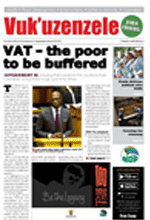
Translations
#FeesMustFall production hits SA stage
#FeesMustFall production hits SA stage UrsulaFreedom the Musical urges the singing of songs of victory!
The South African State Theatre is presenting the premiere of Freedom the Musical, the new production by multi-award-winning playwright and director Aubrey Sekhabi, from 27 February to 31 March 2018.
A strong cast of 47 members and a 13-piece band tell the tale of Phindile, a Tshwane University of Technology student and leader of the Fees Must Fall movement. Her life takes a sharp turn after students protest at the Union Buildings in Pretoria.

The story is a testament to Phindile’s determination to triumph regardless of the odds stacked against her by the system and society.
The production also features Hip Hop star Simphele ‘PdotO’ Mnyandu, Simphiwe Ndlovu, Kabelo ‘Bonafide Billi’ Togoe, Motswako rapper Chad da Don, baritone Otto Maidi, and 2017 Idols top-10 finalist Thokozile Ndimande.
The music composition is raw and gritty and reflects the rhythm and mood of the times with Hip Hop genres.
Sekhabi reunites with his long-term creative partner Wilhelm Disbergen. His previous production, ‘Marikana the Musical’ is still on the minds on many.
The musical came out tops in the 2014 Naledi awards, boldly scooping six awards from 14 nominations.
Tickets are available at Computicket.
A new Randfontein for residents
A new Randfontein for residents UrsulaJob opportunities in the pipeline for Randfontein residents.
The Rand West City Local Municipality is changing the face of Randfontein through the Mantrose Mega City Project, which will see thousands of houses being built for locals and will bring various job opportunities to community members.
The recently launched R11 billion project includes the building of a mall, clinic, railway line and other amenities in Middelvlei, which will ensure job creation and boost investor confidence in the area.
Rand West City Local Municipality spokesperson Tshidiso Tlharipe said the project will change the face of Randfontein.
“We are truly excited about this project and we know that it is going to bring about positive change for our people.
“Not only are we going to build 15 000 houses, we will also provide thousands of job opportunities for our locals and that’s ultimately what we want. We want to absorb them in projects in their own town and we believe that this will uplift them as individuals,” he said.
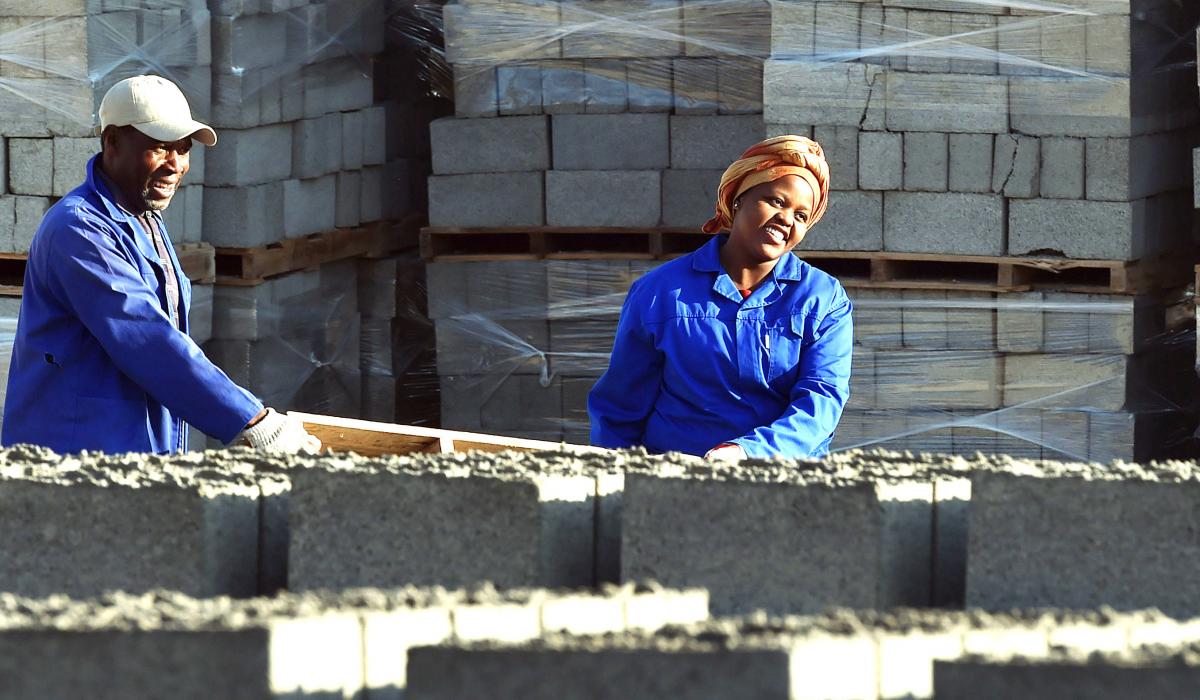 The houses will consist of RDP and low-cost units. “We have many business owners who will sub-contract in the development of this project, and locals who will do general work, such as brick laying, plastering and painting,” said Tlharipe.
The houses will consist of RDP and low-cost units. “We have many business owners who will sub-contract in the development of this project, and locals who will do general work, such as brick laying, plastering and painting,” said Tlharipe.
This will go a long way towards accommodating the less fortunate and those who earn between R3 000 and R15 000 per month.
The owner and chairperson of Finsbury Middelvlei Consortium, Matshidiso Ngakane, said the project will give them an opportunity to be part of something big in their own communities.
“This is the first project of its kind in Randfontein and we are thrilled as residents. The project will provide much-needed job opportunities for locals for at least seven years and will see business owners able to sustain themselves as well,” said Ngakane.
A new dawn for South Africa
A new dawn for South Africa Estelle GreeffFrom the Union Buildings
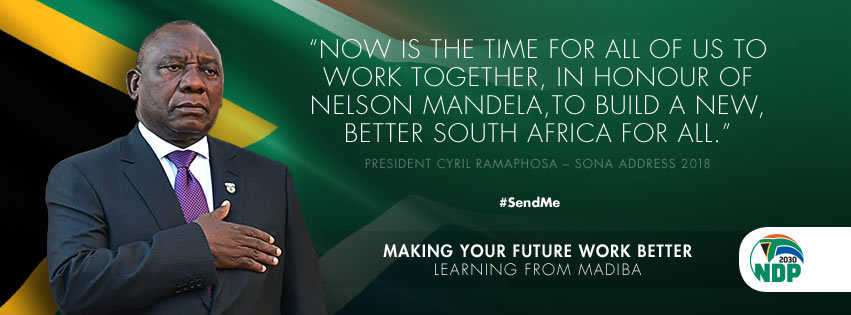
South Africa’s new President inspires hope with his drive to renew the nation.
“Together, we are going to make history. We have done it before and we will do it again,” said President Ramaphosa.
As South Africa prepares to mark the centenary of the former statesman, South Africans should honour Madiba and build the future that he envisioned.
President Ramaphosa took office as President following former President Jacob Zuma’s resignation after being recalled by the African National Congress.
“We should put behind us the era of diminishing trust in public institutions and weakened confidence in leaders. We should put all the negativity that has dogged our country behind us, because a new dawn, inspired by our collective memory of Nelson Mandela and the changes that are unfolding, is upon us.
“As we rid our minds of all negativity, we should reaffirm our belief that South Africa belongs to all who live in it,” the President confirmed.
Get you know your President
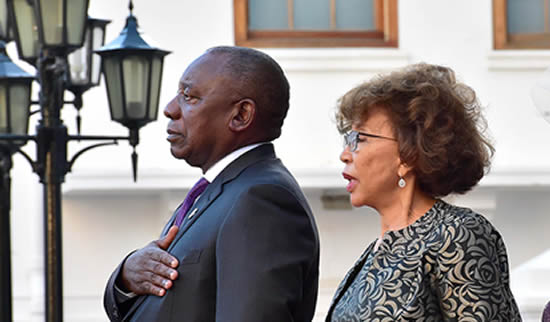 President Ramaphosa was born on 17 November 1952 in Johannesburg. His family was moved from Western Native Township to Soweto in 1962, where he attended Tshilidzi Primary School and completed his secondary education at Mphaphuli High School in Sibasa, Venda, in 1971.
President Ramaphosa was born on 17 November 1952 in Johannesburg. His family was moved from Western Native Township to Soweto in 1962, where he attended Tshilidzi Primary School and completed his secondary education at Mphaphuli High School in Sibasa, Venda, in 1971.
In 1972 President Ramaphosa commenced his studies at the University of the North, where he became involved in student politics and joined the South African Student Organisation and the Black People’s Convention.
He played an important role in the liberation struggle to ensure a democratic South Africa.
The President was detained in 1974 for organising pro-Frelimo rallies that were held to celebrate the independence of Mozambique. Two years later, after the Soweto student uprising, he was detained again.
In 1982 President Ramaphosa became the first general secretary of the National Union of Mineworkers, and he was elected as the African National Congress (ANC) secretary general in 1991. He then became head of the ANC team that negotiated the transition to democracy.
Following the country’s first democratic elections in 1994, President Ramaphosa was elected chairperson of the Constitutional Assembly, which wrote South Africa's new democratic constitution. He was also the deputy chairperson of South Africa’s National Planning Commission, which was responsible for compiling the National Development Plan.
He moved into the private sector in 1996, and in 2001 founded Shanduka Group, a diversified investment holding company. He resigned from Shanduka in 2012, following his appointment as Deputy President of South Africa.
President Ramaphosa holds a law degree from the University of South Africa and has received several honorary doctorates from local and international universities.
President Ramaphosa is married to Dr Tshepo Motsepe-Ramaphosa, who was born in Soweto. A medical doctor by profession, she holds a Master’s Degree in public health from Harvard University.
Dr Motsepe-Ramaphosa is the sister of business mogul and billionaire Patrice Motsepe and Bridgette Radebe, who is married to Minister in the Presidency, Jeff Radebe.
The first lady is also the current chairperson of the African Self-Help Association Trust.
Educational background
Mphaphuli High School, Sibasa, South Africa (1971)
University of the North, Baccalaureus Procurationis – Law
National University of Lesotho, Awarded in 2002 Honorary Doctor of Laws
University of the North, Awarded in 2002 Honorary Doctorate
University of South Africa, Completed 1981 B. Proc. Degree – Law
University of Massachusetts, United States of America, Honorary Doctorate
University of Cape Town, Honorary Doctorate
University of KwaZulu-Natal, Honorary Doctorate
University of Port Elizabeth, Honorary Doctorate
Awards
- Olof Palme prize in Stockholm in 1987.
- The National Order of the Baobab in Silver, in 2009, for his contribution to the multi-party negotiations and for chairing the Constitutional Assembly.
A stronger foundation for education
A stronger foundation for education LondekileSoNA 2018
Government has built a new, state-of-the-art school for Westbury learners.
Learners from Everest Primary School, west of Johannesburg, couldn’t wait for the first day of school this year, thanks to government’s project to demolish asbestos schools and replace them with bricks and mortar. 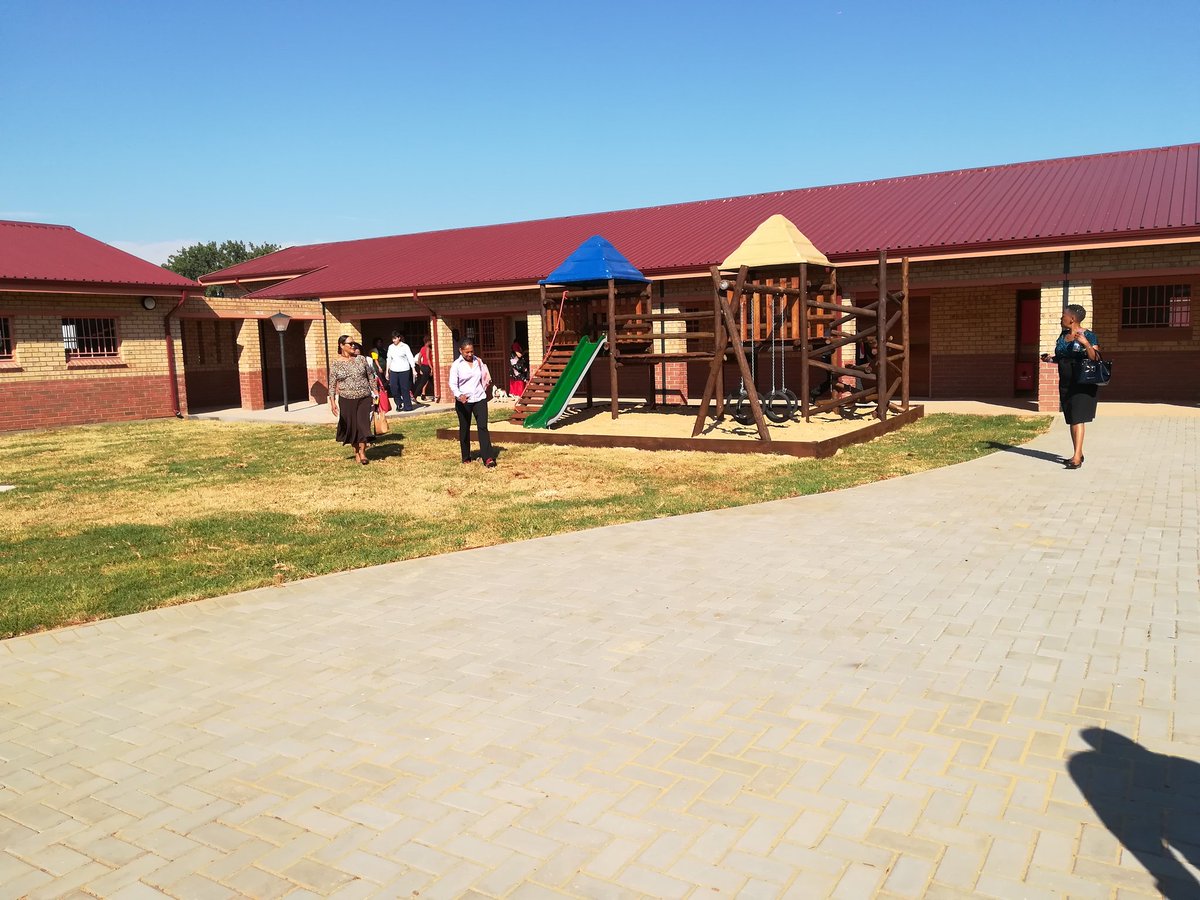
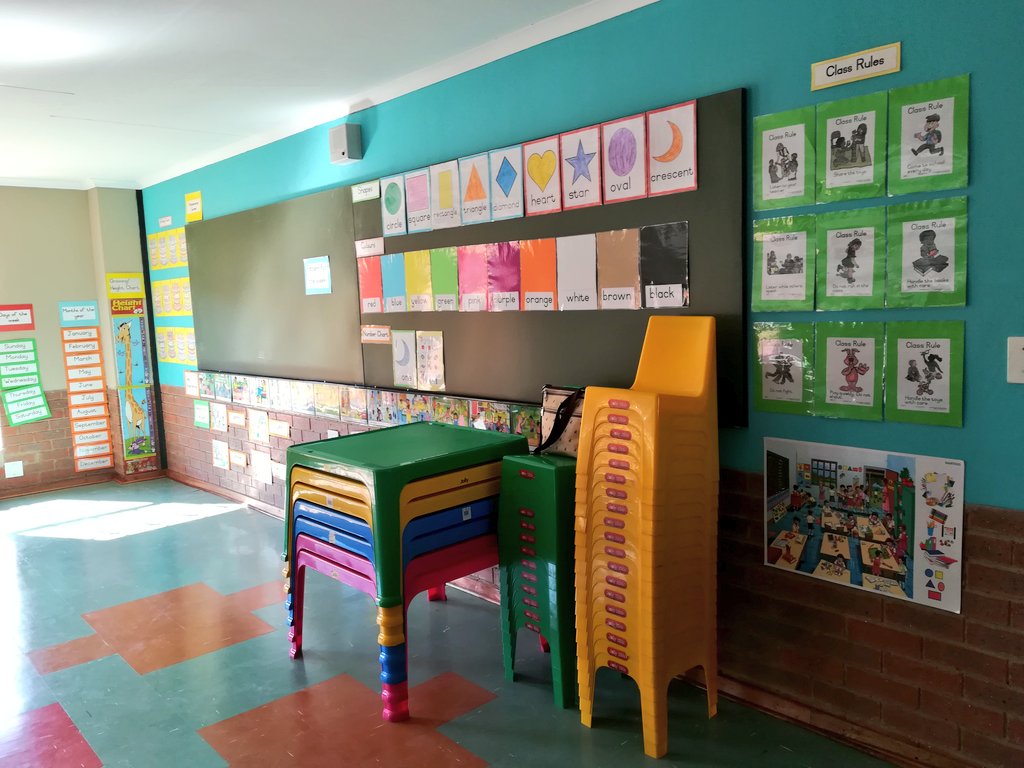
The school is one of 42 that the Gauteng Government has already rebuilt and opened.
Gauteng Education MEC Panyaza Lesufi, Gauteng Premier David Makhura and Infrastructure Development MEC Jacob Mamabolo officially opened Everest Primary School on the first day of school this year.
“We are in the process of eliminating what we called ‘asbestos schools’ in the province. There are 21 of them. Everest Primary School is a major one that we had to demolish and rebuild with bricks and mortar and we are excited,” said MEC Lesufi.
“We are not opening an ordinary school. We are opening a school that has childcare facilities, that cannot be matched by private schools; laboratories and a properly constituted dining hall, with chairs and tables, so learners can sit and eat,” he added.
Government aims to build one school every month until 2019.
Worth R97 million, Everest Primary School also has smart boards and can now accommodate 1120 learners, from Grades R to 7. Last year it catered for 950 learners.
The school recently celebrated its 40th birthday.
The department said that the idea behind upgrading schools, mainly located in townships, is to make them attractive so that more learners will want to attend them instead of having to travel to far-flung areas which is costly.
The school was built in two phases. Phase one consisted of the library, multi-purpose centre, laboratory and nutrition hall; while phase two saw the building of the classrooms, including the separate Grade R classes, and the admin block.
Did you know?
Government aims to build one school every month until 2019.
Agriculture is key to SA's economic growth
Agriculture is key to SA's economic growth vuyelwanSONA2018
President Cyril Ramaphosa said government will accelerate the land redistribution programme to redress historical injustice, to bring more producers into the agricultural sector and to make more land available for cultivation. 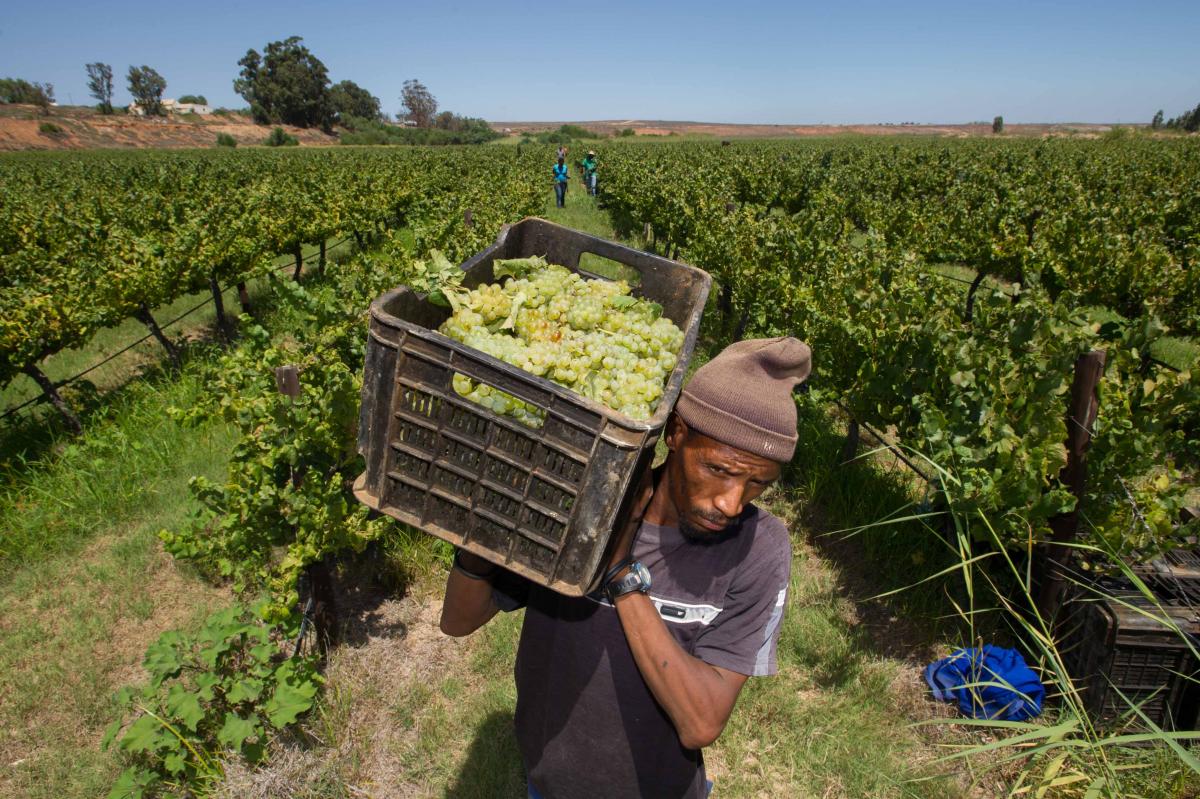
“Guided by the resolutions of the 54th National Conference of the governing party, this approach will include the expropriation of land without compensation,” said President Ramaphosa.
He said government is determined that expropriation without compensation should be implemented in a way that increases agricultural production, improves food security and ensures that the land is returned to those from whom it was taken under colonialism and apartheid.
Government will undertake a process of consultation to determine the modalities of the implementation of this resolution.
“We make a special call on financial institutions to partner with it in mobilising resources to accelerate the land redistribution programme as increased investment will be needed in this sector,” the President said.
He said agriculture presents one of the greatest opportunities to significantly grow South Africa’s economy and to create jobs.
Agriculture made the largest contribution by a significant margin to the improved growth of the country’s economy in the second and third quarters of 2017.
Growing the tourism sector
Tourism currently sustains about 700 000 direct jobs and is performing better than most other growth sectors.
“There is no reason why it can’t double in size. This year, we will enhance support for destination marketing in key tourism markets and take further measures to reduce regulatory barriers and develop emerging tourism businesses,” said President Ramaphosa.
The President called on all South Africans to open their homes and their hearts to the world.
Better wages for workers
Better wages for workers vuyelwanSONA2018
President Cyril Ramaphosa says the introduction of a national minimum wage is an example of what is possible when South Africans engage in meaningful dialogue to resolve differences.
The national minimum wage will be introduced on 1 May 2018.
The President said this was a historic achievement that is expected to increase the earnings of more than six million working South Africans and improve the living conditions of households across the country.
“The introduction of a national minimum wage was made possible by the determination of all social partners to reduce wage inequality while maintaining economic growth and employment creation,” said President Ramaphosa, delivering his maiden State of the Nation Address.
Cabinet approved the National Minimum Wage Bill in November last year.
Representatives of government, business, the community sector and two of the three labour federations represented at the National Economic Development and Labour Council signed the national minimum wage agreement.
The minimum wage agreement was overseen by President Ramaphosa while he was Deputy President.
According to the Department of Labour, all workers who do not fall under the farm/forestry, domestic sectors, Extended Public Works Programme (EPWP) and learnerships should not be paid less than the set R20 minimum wage per hour.
Did you know?
- In 2016 a National Minimum Wage was agreed on by Nedlac partners and the rate is R20 per hour or R3 500 per month. The National Minimum Wage aims to reduce inequality and transform the inherited apartheid wage structure.
- Cabinet has approved the National Minimum Wage Bill which will be submitted to Parliament for discussion and approval.
- The minimum wage for farm workers will be R18 per hour.
- The minimum wage for domestic workers will be R15 per hour.
- The minimum wage for workers on an expanded public works programme is R11 per hour.
Building a proud nation
Building a proud nation vuyelwanSONA 2018
President Cyril Ramaphosa is on a mission to transform the country and he wants to take all South Africans with him.
When President Cyril Ramaphosa took to the podium to deliver his first State of the Nation Address (SoNA) he did not only outline government’s plans to improve the lives of all South Africans, he also called on citizens to work with government to build a country of which we can be proud.
South Africans responded to his call and showed their patriotism with the message, ‘send me’.
“They are galvanised by a sense of patriotism that elevates the interests of the country above narrow, selfish interests. They are moved by a conviction that tomorrow will be better than today.
They are saying they are ready to lend a hand, to build a South Africa that benefits all of its people."
Speaking at his reply to the SoNA debate in the National Assembly, the President shared with members of Parliament his plan to take the country forward.
“I do have a plan. It’s the National Development Plan and I call for consultative processes and summits because our people want to be involved. They want to participate,” he said.
The President explained that the job summit that he spoke about in the SoNA was called for by the trade movement in South Africa.
“They represent the people and want to sit down with government, business, communities and ourselves as workers to chart a way forward to see how we can create jobs. A clever government would heed this call,” he said.
Similarly, the social sector summit announced in the SoNA aims to bring together South Africans who have the skills, experience and capabilities to address the critical challenges that beset the country.
“I am confident that we can move with urgency and purpose to forge a new social compact, to revive our economy, create jobs, reduce inequality and effect fundamental social and economic transformation.
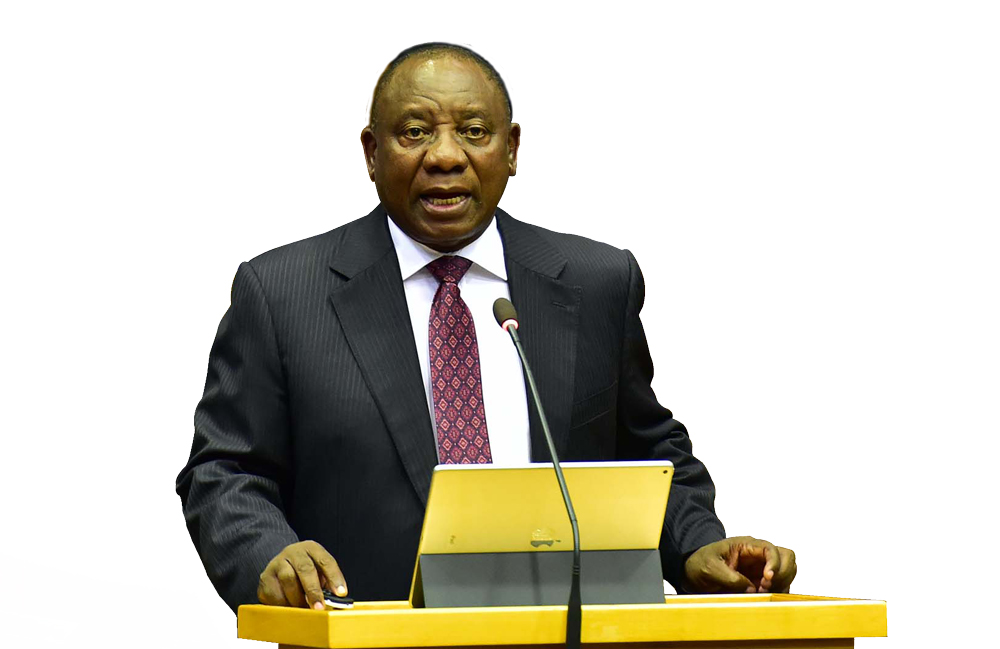 “We want all South Africans to participate but more than this, we want all South Africans to lend a hand,” he said.
“We want all South Africans to participate but more than this, we want all South Africans to lend a hand,” he said.
Addressing the issue of the expropriation of land without compensation, President Ramaphosa said that the taking of land from indigenous people in the country was the original sin.
“It caused divisions, hurt and pain amongst our people. There are few in our country who would contest that the dispossession of black South Africans of their land contributed fundamentally to the impoverishment and disempowerment of the majority of our people,” he said.
The expropriation of land without compensation is envisaged as one of the measures that government will use to accelerate the redistribution of land to black South Africans.
“We will need to determine, collectively, how we can implement this measure in a way that promotes agricultural production, improves food security, advances rural development, reduces poverty and strengthens our economy.”
The Marikana tragedy
Another issue raised in the SoNA debate was the Marikana tragedy during which 44 people lost their lives.
“Marikana was one of the darkest moments in our young democracy. I would like to use this opportunity to address the role that I played in my capacity as a Lonmin director in the events of that tragic week.”
“Notwithstanding the findings of the Farlam Commission on my responsibility for the events that unfolded, I am determined to play whatever role I can in the process of healing and atonement. In this, I am guided by the needs and wishes of the families of the 44 workers who lost their lives,” said the President.
After investigations three broad areas were identified for action, namely compensation for the injured and the families of those who lost their lives, examining the procedures of public order policing and preparing valid cases for prosecution.
“Government is making progress with continuous engagement with the legal representatives of the victims, especially on matters of families who lost their loved ones. This must be concluded in the coming months,” he said.
Protecting women
President Ramaphosa described the economic inequality between men and women in the country as a grave injustice.
“One of the programmes where we have sought to integrate various approaches is the ‘She Conquers’ initiative, which aims to empower adolescent girls and young women to reduce HIV infections, tackle gender-based violence, keep girls in school and increase economic opportunities,” he noted.
The President also called for a united effort to tackle the chauvinism experienced by women in the workplace and other social settings.
“We must confront the social and economic factors that prevent young women from completing school, entering higher education and graduating,” he said.
Government has adopted an integrated programme of action to eliminate all forms of violence against women and children.
“With the support of communities, we aim to prevent such violence by transforming attitudes, practices and behaviours.”
Economic recovery on the cards
Economic recovery on the cards LondekileSoNA 2018
South Africa's new President Cyril Ramaphosa has given the country and its people hope for the future.
Government and South Africans are determined to confront the challenges facing the country to accelerate progress in building a more prosperous and equitable society.
These were some of the uplifting words President Cyril Ramaphosa had for South Africans when he delivered his first State of the Nation Address (SoNA) in Parliament in Cape Town recently.
For many years South Africa’s economy has not grown at the pace needed to create enough jobs or lift citizens out of poverty. Even though poverty levels rose in 2015, unemployment increased and inequality persisted, President Ramaphosa said that there is a greater sense of optimism among citizens.
“Our people are hopeful about the future,” he said to the applause of guests.
Business confidence among South African companies has improved and foreign investors are looking anew at opportunities in South Africa.
“Some financial institutions have identified South Africa as one of the hot emerging markets for 2018. Our task, as South Africans, is to seize this moment of hope and renewal, and to work together to ensure that it makes a meaningful difference in the lives of our people,” the President said.
This year government will initiate measures to set the country on a new path of growth, employment and transformation. This will be done, the President said, by getting social partners in the country to collaborate to build a social compact on which the drivers of economic recovery will be created.
"Tough decisions have to be made to close our fiscal gap, stabilise our debt and restore our state-owned enterprises to health,” he said.
Government’s priorities for 2018
Government’s priorities for 2018 LondekileSoNA 2018
Government will embark on a number of measures to address unemployment, forge ahead with localisation and ensure transformation in industrialisation.
“We are one people, committed to working together to find jobs for our youth; build factories, roads, houses and clinics; prepare our children for a world of change and progress; and build cities and towns where families are safe, productive and content,” said President Cyril Ramaphosa in his State of the Nation Address.
Government's localisation programme will help stimulate manufacturing and designate products like textiles, clothing, furniture, rail rolling stock and water meters for local procurement.
“We have already spent over R57 billion on locally-produced goods that may have been imported from other countries,” said President Ramaphosa.
Special economic zones remain important instruments that government will use to attract strategic foreign and domestic direct investment and build targeted industrial capabilities and establish new industrial hubs.
President Ramaphosa stressed that industrialisation must be underpinned by transformation.
Through measures like preferential procurement and the black industrialists programme, South Africa is developing a new generation of black and female producers that can build enterprises of significant scale and capability.
The President said government will improve its capacity to support black professionals, deal decisively with companies that resist transformation, use competition policy to open markets up to new black entrants, and invest in the development of businesses in townships and rural areas.
“Radical economic transformation requires that we fundamentally improve the position of black women and communities in the economy, ensuring that they are owners, managers, producers and financiers,” he said.
What to look forward to this year
- This month, government will launch the Youth Employment Service initiative, which will place unemployed youth in paid internships in companies across the economy. Together with partners in business, government has agreed to create one million internships in the next three years.
- Government will convene a Jobs Summit in the next few months to align the efforts of every sector and every stakeholder behind the imperative of job creation.
- An Investment Conference will take place in the next three months, targeting domestic and international investors, to market compelling investment opportunities in our country.
- President Ramaphosa will establish a Youth Working Group that is representative of all young South Africans to ensure that policies and programmes advance their interests.
Mining can revive the economy
Mining has massive potential for growth and job creation.
President Ramaphosa said that mining is South Africa’s sunrise industry in reviving the economy.
“With the revival in commodity prices, we are determined to work with mining companies, unions and communities to grow the sector, attract new investment, create jobs and set the industry on a new path of transformation and sustainability.”
Government will intensify engagements with all stakeholders on the Mining Charter this year, to ensure that it is truly an effective instrument to sustainably transform the face of mining in South Africa.
“By working together, in a genuine partnership, underscored by trust and a shared vision, I am certain we will be able to resolve the current impasse and agree on a Charter that both accelerates transformation and grows this vital sector of our economy,” President Ramaphosa said.
In supporting the mining sector, government also oversaw the Framework Agreement for a Sustainable Mining Industry signed between government, business and labour to promote sustainable mining with decent living conditions.
President Ramaphosa said he was concerned by the rise in mining fatalities that occurred last year.
He called on mining companies to work together with all stakeholders to ensure that mine accidents are dramatically reduced.
“One mining fatality is one too many,” he stressed.
Growing the economy
Growing the economy vuyelwanSONA 2018
Infrastructure investment is key to growing South Africa’s economy, to create jobs, empower small businesses and provide services to citizens, said President Cyril Ramaphosa.
Delivering his first State of the Nation Address in Parliament in Cape Town President Ramaphosa said government has invested heavily in new roads, power stations, schools and other infrastructure.
Some of the projects are taking time to get off the ground and are aimed at enhancing government’s efforts to develop the country’s infrastructure.
To address this, President Ramaphosa said he will put a team together to speed up implementation of new projects, particularly water and health facilities as well as road maintenance.
“We have learnt some valuable lessons from our experience in building all the new infrastructure, which will inform our way ahead. We will focus on improvements in our budget and monitoring systems, improve the integration of projects and build a broad compact on infrastructure with business and organised labour,” said President.
Ultimately, he said, the growth of South Africa’s economy will be sustained by small businesses, as is the case in many countries.
“It is our shared responsibility to grow this vital sector of the economy,” he said.
Government’s plans for infrastructure development
- To work with social partners to build a small business support ecosystem that assists, nourishes and promotes entrepreneurs.
- To honour its undertaking to set aside at least 30 percent of public procurement to Small, Medium and Micro-sized Enterprises (SMMEs), cooperatives and township and rural enterprises.
- To continue to invest in small business incubation. “We encourage business to do the same.”
- To finalise a small business and innovation fund targeted at start-ups.
- To reduce the regulatory barriers for small businesses.
- To expand economic opportunities for people with disabilities.
Did you know?
- The establishment through the CEOs Initiative of a small business fund which currently stands at R1.5 billion is an outstanding example of the role that the private sector can play.
- The Small Enterprise Finance Agency has launched a scheme to develop and fund entrepreneurs with disabilities called the Amavulandlela Funding Scheme.
Improved health for all
Improved health for all vuyelwanSONA2018
President Cyril Ramaphosa used the State of the Nation Address to outline government’s plans to improve South Africa’s health system in the following ways: 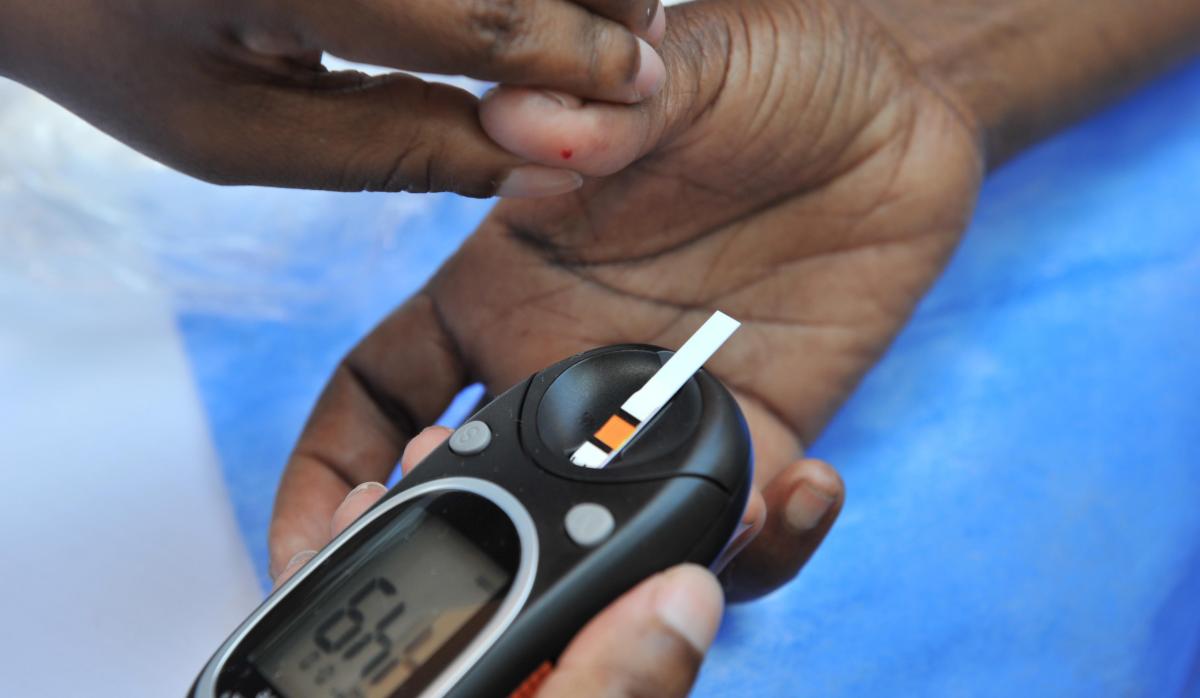
- By scaling up the testing and treating campaign and initiating an additional two million people on antiretroviral treatment by December 2020.
- Confront lifestyles diseases such as high blood pressure, diabetes, cancers and cardiovascular diseases.
- In the next three months the Department of Health will launch a huge cancer campaign similar to the HIV counselling and testing campaign. This will also involve the private sector as a way of mobilising all resources to fight this disease.
President Ramaphosa also said government would continue to work towards implementing universal health coverage through the National Health Insurance (NHI). He highlighted the following:
- The NHI Bill which is ready to be processed through government and will be submitted to Parliament in the next few weeks.
- Certain NHI projects targeting the most vulnerable people in society will commence in April this year.
Fast facts
- The availability of anti-retroviral drugs has led to an increase in life expectancy and low levels of mother-to-child HIV transmission rates.
- Life expectancy increased from 58.8 years in 2007 to 64.3 in 2015 while the death rate fell from 11.6 to 9.6 percent over the same period (Institute of Race Relations).
- Mother-to-child transmissions declined from 8.5 percent in 2008 to 1.5 percent in 2015. As a result, thousands of babies were protected from HIV infection (South African Medical Research Council).
- South Africa will in April 2018 introduce the new fixed-dose combination of three drugs, Tenofovir, Lamivudine and Dolutegravir that will make it easier for patients to adhere to treatment.
Di you know?
- South Africa today has the biggest HIV/AIDS treatment programme in the world with over 3.9 million people on treatment by August 2017.
- All HIV positive South Africans now have access to anti-retroviral drugs irrespective of their CD4 count.
It’s a new era for SA, say Ministers
It’s a new era for SA, say Ministers LondekileSoNA 2018
A dawn of a new era – these were some of the words used by Ministers to describe President Cyril Ramaphosa’s State of the Nation Address (SoNA) as he announced plans to deal with corruption, poor governance, slow growth and unemployment.
Speaking outside the National Assembly shortly after SoNA some Ministers shared their views.
Communications Minister Mmamoloko Kubayi-Ngubane said the speech drew the inspiration of a country turning over a new leaf.
“The speech was well received, well balanced, touched on critical areas – investment, the economy, job creation and focused on youth [jobs] and making sure that young people get out and talk about skills,” said the Minister.
She said the speech gave clarity on the issue of the recently announced free higher education and training as well as the pronouncement on the Mining Charter.
Trade and Industry Minister Rob Davies welcomed the President’s stance on ensuring that the industrialisation of the economy is prioritised.
Minister Davies said government had been emphasising that the global economies are shifting towards industrialising their economies and that it was good that the President aimed to put in motion practical measures.
Higher Education Minister Professor Hlengiwe Mkhize said the President’s speech provided more details on how several programmes would be funded.
“There is absolute clarity as to where we are going and how we should make a paradigm shift.
“But what I liked the most was emphasis on areas that bring about growth of the gross domestic product because once you succeed with that one, support for phasing in higher education and the healthcare programmes that he spoke about will be easier to sustain,” she said.
Land Reform and Rural Development Minister Gugile Nkwinti said the speech inspired hope.
“The SoNA ought to inspire people, not just the party that is leading government, but the people of South Africa. Look at all the parties there, they stood up and they clapped at the end of the speech. That is what South Africa needs. That is why we are happy.”
Agriculture, Forestry and Fisheries Minister Senzeni Zokwana said all South Africans should aspire to preserve the legacy of struggle icons who fought to liberate the country for the betterment of the lives of all South Africans.
“The speech was good – outlining our challenges, not shying from what we are faced with but coming up with possibilities about nation building, about obligations, about being responsible and I think out of this we need to say South Africa has changed and we need to make sure all of us make ourselves available to realise the dream of all those who served at Robben Island, including Nelson Mandela,” he said.
Jobs: Justice and Constitutional Development Mar 2018
Jobs: Justice and Constitutional Development Mar 2018 UrsulaHead of the Office of the Director-General (Chief Director: Executive Support and Intergovernmental Relations)
Reference: 18/25/DG
Package: R1 127 334 – R1 347 879 per annum. The successful candidate will be required to sign a performance agreement.
Requirements: An undergraduate qualification (NQF level 7) as recognized by SAQA in legal or equivalent qualification; At least 5 years’ experience at senior managerial level of which 3 years should be in public sector.
Enquiries: Mr M Kekana Tel: (012) 357 8023
Senior Legal Administration Officer (Mr6)
Reference: 18/27/CD
Salary: R420 909 – R1 023 054 per annum. Salary will be in accordance with OSD determination. The successful candidate will be required to sign a performance agreement.
Requirements: An LLB degree or 4 years recognized legal qualification; At least 8 years appropriate post qualification legal experience; Knowledge of the Constitution of the Republic of South Africa, South African Human Rights Acts, the Promotion of Equality and Prevention of Unfair Discrimination Act, 2000. Knowledge of the South African Legal system and legal practices with specific reference to civil litigation relating to the right to equality; Knowledge and experience in office administration; Experience in providing legal support and to raise awareness on the promotion of equality and the usage of Equality Courts; A valid driver’s licence.
Enquiries: Mr. Bheki Sibiya (012) 315 1456
Assistant Director: LGBTI Programme
Reference: 18/19/CD (12 MONTHS CONTRACT)
Salary: R334 545 + 37% = R458 326 in lieu of benefits. The successful candidate wil be required to sign a performance agreement.
Requirements: A Bachelor’s Degree/ National Diploma in Social Science or Equivalent qualification; A minimum of 3 years’ experience in the management of pending hate crime cases within the criminal justice system; Knowledge of the National Intervention Strategy for Lesbian, Gay, Bisexual, Transgender and Intersex (LGBTI) Sector and related matters; Knowledge about the work of the National Task Team on Gender and Sexual Orientation- Based Violence Perpetrated Against LGBTI Persons; Knowledge and understanding of Public Finance Management Act, Research and Human Rights will be an added advantage; A valid driver’s license.
Enquiries: Ms. M Kganyago (012) 315 1844
Closing Date: 05 March 2018
Assistant State Attorney, (Lp3-Lp4) (2 Posts) (Re-Advertisement)
Reference: 18/24/SA
Salary: R265 284 – R759 603. (Salary will be in accordance with OSD determination). The successful candidate will be required to sign a performance agreement.
Requirements: An LLB or 4 year recognized legal qualification; Admission as an Attorney; At least 2 years appropriate post qualification legal/litigation experience; A minimum of 2 years’ experience in conveyancing and notary; Admission as a conveyancer and notary will be an added advantage. A valid driver’s licence.
Enquiries: Mr E Seerane (012) 315 1780
Legal Administration Officer (Mr1 – Mr5)
Reference: 18/26/CD
Salary: R174 606 – R818 301 per annum. (Salary will be in accordance with OSD determination). The successful candidate will be required to sign a performance agreement.
Requirements: An LLB Degree or 4 year recognized legal qualification; Knowledge of Constitution of the Republic of South Africa; South African Human Rights Acts, he Promotion of Equality and Prevention of Unfair Discrimination Act, 2000 the Equality Act, Knowledge of the South African Legal system and legal practices with specific reference to civil litigation relating to the right to equality; Knowledge and experience in office administration; Experience in providing legal support and to raise awareness on the promotion of equality and the usage of Equality Courts; A valid driver’s licence.
Enquiries: Mr. Bheki Sibiya (012) 315 1456
All Other Posts: Closing Date: 16 March 2018
Note: Interested applicants may visit the following website: www.justice. gov.za or www.dpsa.gov.za to view the full job specification of the above positions. Applications must be submitted on Form Z83, obtainable from any Public Service Department or on the internet at www.gov.za. A Z83 form & CV must be accompanied by original certified copies of qualifications, identity document and a driver’s licence where necessary. A SAQA evaluation report must accompany foreign qualifications. Applications that do not comply with the above mentioned requirements will not be considered. All shortlisted candidates for SMS posts will be subjected to a technical and competency assessment. Candidate will complete a financial disclosure form and also be required to undergo a security clearance. The foreigners or dual citizenship holder must provide the Police Clearance certificate from country of origin.
The DOJ&CD is an equal opportunity employer. In the filling of vacant posts the objectives of section 195 (1) (i) of the Constitution of South Africa, 1996 (Act No: 108 of 1996), the Employment Equity imperatives as defined by the Employment Equity Act, 1998 (Act No: 55 of 1998) and relevant Human Resources policies of the Department will be taken into consideration. Reasonable accommodation shall be applied for People with Disabilities including where drivers licence is a requirement. Correspondence will be limited to short-listed candidates only. If you do not hear from us within 3 months of this advertisement, please accept that your application has been unsuccessful. The department reserves the right not to fill these positions. Women and people with disabilities are encouraged to apply and preference will be given to the EE Target.
Jobs: Labour Mar 2018
Jobs: Labour Mar 2018 UrsulaDeputy Director: Auxiliary Services
Centre: Directorate: Fleet and Auxiliary Services, Head Office
Reference No: HR 4/18/02/38 HO
Salary: All inclusive: R 657 558 per annum
Enquiries: Ms T Malindzisa, Tel: (012) 309 4647
Head Office
Chief Director: Human Resources Management: Private Bag X 117, Pretoria, 0001 or hand deliver at 215 Francis Baard Street.
Deputy Director: Facilities Management
Centre: Directorate: Fleet and Auxiliary Services, Head Office
Reference No: HR 4/18/02/34HO
Salary: All inclusive: R 657 558 per annum
Enquiries: Ms T Malindzisa, Tel: (012) 309 4246
Head Office
Chief Director: Human Resources Management: Private Bag X 117, Pretoria, 0001 or hand deliver at 215 Francis Baard Street.
Principal Inspector: Employment Equity
Centre: Provincial Office: Free State
Reference No: HR 4/4/8/159 (1 post)
Salary: Commencing: R417 552 per annum
Enquiries: Ms AZ Mantutle, Tel: (051) 505 6347
Provincial Office
Chief Director: Provincial Operations: P O Box 522, Bloemfontein, 9300 or hand deliver at Laboria House, 43 Charlotte Maxeke Street, Bloemfontein.
Deputy Director: Facilities Management
Centre: Directorate: Fleet and Auxiliary Services, Head Office
Reference No: HR 4/18/02/34HO
Salary: All inclusive: R 657 558 per annum
Enquiries: Ms T Malindzisa, Tel: (012) 309 4246
Head Office
Chief Director: Human Resources Management: Private Bag X 117, Pretoria, 0001 or hand deliver at 215 Francis Baard Street.
Deputy Director: Beneficiary Services
Centre: Provincial Office: Western Cape
Reference No: HR4/4/10/185
Salary: All inclusive: R 657 558 per annum
Enquiries: Ms. Z Maimane, Tel: (021) 441 8125
Provincial Office
Chief Director: Provincial Operations: PO Box 872, Cape Town, 8000 or hand deliver at No.9 Long Street, Cnr Riebeeck and Long Street Cape Town.
Closing date for applications: 5 March 2018 | For full details of the advertised posts visit our website: www.labour.gov.za
Applications must be submitted on form Z83, obtainable from any Public Service Department or on the internet at www.gov.za/documents. The fully completed and signed form Z83 should be accompanied by a recently updated, comprehensive CV as well as recently certified copies of all qualification(s) including a Senior Certificate and ID-document [Driver’s license where applicable]. Non-RSA Citizens/Permanent Resident Permit Holders must attach a copy of their Permanent Residence Permits to their applications. Should you be in possession of a foreign qualification, it must be accompanied by an evaluation certificate from the South African Qualification Authority (SAQA). Applicants who do not comply with the above-mentioned requirements, as well as applications received late, will not be considered. The Department does not accept applications via fax or email. Failure to submit all the requested documents will result in the application not being considered. Correspondence will be limited to short-listed candidates only. If you have not been contacted within eight (8) weeks after the closing date of this advertisement, please accept that your application was unsuccessful. Suitable candidates will be subjected to a personnel suitability check (criminal record, citizenship, credit record checks, qualification verification and employment verification). Where applicable, candidates will be subjected to a skills/knowledge test. All shortlisted candidates for SMS posts will be subjected to a technical competency exercise that intends to test relevant technical elements of the job, the logistics of which be communicated by the Department. Following the interview and technical exercise, the selection panel will recommend candidates to attend generic managerial competencies using the mandated DPSA SMS competency assessment tools. Successful candidates will be appointed on a probation period of 12 months. The Department reserves the right not to make any appointment(s) to the above post. The successful candidate will be expected to sign a performance agreement. The Department of Labour is an equal opportunity affirmative action employer. The employment decision shall be informed by the Employment Equity Plan of the Department. It is the Department’s intention to promote equity (race, gender and disability) through the filling of this post(s) with a candidate whose transfer / promotion / appointment will promote representativity in line with the numerical targets as contained in our Employment Equity Plan.
Jobs: Public Protector South Africa Mar 2018
Jobs: Public Protector South Africa Mar 2018 UrsulaChief Financial Officer
Reference: PPSA 01/2018
Centre: Pretoria (Head office)
Salary: All-inclusive salary package of R1 146 569 - R1 370 876 per annum
Requirements: Applicants must have a postgraduate qualification in Financial Management or be a qualified Chartered Accountant, coupled with 8 years relevant experience, of which 5 years should have been at Senior Management level; Experience in, and knowledge of financial management at a strategic level - preferably in a service-orientated organisation; In-depth knowledge of functional financial management, budgeting and corporate governance; Exposure to auditing practices; Knowledge of the PFMA and Treasury Regulations, project management and change management is essential; Knowledge of the Public Service, Generally Accepted Accounting Practice (GAAP) and Generally Recognised Accounting Practice (GRAP); Computer literacy, specifically MS Excel; A valid driver’s licence is essential; Knowledge of Payroll Management would be an added advantage; Good understanding and knowledge of the Public Protector’s mandate; Excellent communication skills (verbal and written); Report-writing skills; Ability to work under pressure and meet deadlines; Excellent interpersonal skills; Willingness to work long hours; Management ability; Ethical conduct; Ability to liaise with staff at all levels within the organisation; Accuracy; Service delivery orientated.
Key Responsibilities: Ensure compliance with relevant legislation and regulations; Advise and guide management on annual budget and financial issues; Advise the Accounting Officer on strategic financial and corporate governance issues; Provide management and administration to the Audit Committee; Manage the Finance and Supply Chain Management Unit; Develop, implement and maintain appropriate systems and policies; Ensure effective, efficient and economic management of financial resources and asset register for the office; Manage relationships with all stakeholders including internal and external auditors; Manage and ensure proper implementation of payroll on a monthly basis; Effectively manage all donor funds received by the office; Ensure effective risk and internal control measures within financial management; Facilitate the submission of the office’s annual budget vote and MTEF inputs.
Enquiries: Mr G. Tyelela / Mr S. Maredi (012) 366 7079 / 7146
Applications: Please direct your application, stating the relevant reference number, for the attention of Mr T. Khunou to Private Bag X677, Pretoria, 0001 or hand-deliver at 175 Lunnon Road, Hillcrest Office Park, Pretoria. Candidates may also email applications to: Applications@pprotect.org
Closing Date: 16 March 2018
Note: All appointments will be done in terms of the Public Protector Act and a 6 month probation period which may be extended to 12 months will be applicable. The successful candidates will be expected to sign the secrecy declaration form and performance agreement within 3 months of accepting the position.
All successful candidates will have to undergo security clearance and vetting; and competency assessments may be conducted.
The Public Protector South Africa reserves the right not to fill this vacancy. Correspondence will be limited to short-listed candidates only. Should you not be contacted within 2 months of the closing date, please consider your application as unsuccessful.
Applications must be accompanied by a covering letter with a detailed CV and 3 references (including certified copies of qualifications and ID document). The Public Protector South Africa is an equal opportunity, affirmative action employer and is committed to the achievement and maintenance of representivity (race, gender and disability). Preference will be given to the candidates whose appointment or promotion meets the requirements for Employment Equity representivity in the Office and residing in the respective Province the post is located.
People with Disabilities; Coloured and Indian candidates; and female candidates will be given preference.
Jobs: Social Development Mar 2018
Jobs: Social Development Mar 2018 UrsulaPost: Chief Director: Poverty Alleviation, Sustainablelivelihood and Food Security (Ref: F1/A/2018)
Branch: Community Development
Total Package: R1 127 334.00 per annum
This inclusive remuneration package consists of a basic salary, the states’ contribution to the Government Employees Pension Fund and a flexible portion that may be structured i.t.o. the applicable rules.
Centre: HSRC Building, Pretoria
Requirements: An undergraduate qualification (NQF level 7) as recognised by SAQA plus 5 years of experience at a senior managerial level in the field of community development. Knowledge of the Public Service legislation. Knowledge of economic development programme. Knowledge and understanding of government developmental plan and approaches. Knowledge and understanding of social development policies and programmes. Knowledge of critical government transformation programmes. Understanding of Poverty Alleviation Initiatives and Programmes. Understanding of Census Report 2011 and Poverty Statistics. Understanding of the National Development Plan (NDP) vision 2030. Knowledge of special poverty relief projects. Understanding of the State of the Nation Address.
Competencies needed: Strategic capabilities and leadership skills. Programme and project management. Information and knowledge management. People management and empowerment. Problem-solving and change management. Policy analysis and development. Client orientation and customer focus. Service delivery innovation. Financial management and administration. Communication (verbal and written). Computer literacy. Stakeholder management. Planning and coordination. Presentation and facilitation. Quality management.
Attributes: Good interpersonal relationship. Ability to work under pressure. Ability to work in a team and independently. Adaptability. Compliant. Independent thinker. Cost consciousness. Honesty and Integrity.
Duties: Develop and review integrated Community empowerment frameworks (guidelines, policies, strategies, programmes and approaches) to facilitate the implementation of poverty alleviation and sustainable livelihoods programmes. Design and facilitate the implementation of community-based poverty alleviation, sustainable livelihoods and economical empowerment interventions. Design, develop and coordinate food and nutrition security programmes. Design programmes to capacitate community members, households, cooperatives and existing and emerging small and medium enterprises to effectively participate in the local economy value chain. Facilitate and coordinate community development research, planning and impact assessment.
Note: In terms of the Branch’s employment equity targets, Coloured and White males and females as well as persons with disabilities are encouraged to apply.
Enquiries: Mr P Netshipale, Tel (012) 312 7662/ 7556
Post: Chief Director: Special Projects and Innovation (Ref: F1/B/2018)
Branch: Strategy and Organisational Transformation
Total Package: R1 127 334.00 per annum
This inclusive remuneration package consists of a basic salary, the states’ contribution to the Government Employees Pension Fund and a flexible portion that may be structured i.t.o. the applicable rules.
Centre: HSRC Building, Pretoria
Requirements: An undergraduate qualification (NQF level 7) as recognised by SAQA plus 5 years of experience at a senior managerial level. Knowledge of the Public Service legislation. Knowledge and understanding of the relevant legal framework. Knowledge of strategic planning and policy development and implementation. Knowledge of design of Programme and Project Management Systems. Knowledge of Monitoring, Evaluation and Reporting. Knowledge and understanding of PFMA. Understanding of EPWP framework. Knowledge of special poverty relief allocations. Understanding of the State of the Nation Address. Understanding of the National Development plan (Vision 2030).
Competencies needed: Financial management and administration. People management and empowerment. Communication. Analytical skills. Strategic capabilities and leadership skills. Client orientation and customer focus. Programme and project management. Presentation and facilitation. Strategic planning. Computer literacy. Project Management Systems. Service delivery innovation. Monitoring, Evaluation and Reporting. Policy analysis and development. Information and knowledge management. Problem-solving and change management. Stakeholder management.
Attributes: Good interpersonal relationship. Ability to work under pressure. Innovative and creative. Ability to work in a team and independently. Ability to inspire others. Ability to prioritise and manage multiple tasks. Confidentiality. Adaptability. Diplomatic. Cost consciousness. Honesty and Integrity.
Duties: Manage the strategic integration of special initiatives, esp. EPWP Social Sector Plan, into existing departmental and sector programmes. Manage and oversee the development of innovative mechanisms and best practices towards institutionalising of special projects in the social development sector. Provide institutional coordination, capacity building and campaigns of special programmes in the social development sector. Establish and manage the institutional mechanisms to ensure coordination and driving, aligned to the three spheres of government (IGR). Facilitate the Joint Implementation Plans with sector departments, participating institutions and partnerships. Align the departmental programmes with the government’s broader priorities and strategies.
Note: In terms of the Branch’s employment equity targets, African and Coloured males, African females and persons with disabilities are encouraged to apply.
Enquiries: Ms NI Vilakazi, Tel (012) 312 7293/ 7490
Post: Director: Sectoral Programme Planning and Coordination (Ref: F1/C/2018)
Branch: Strategy and Organisational Transformation
Total Package: R948 174.00 per annum
This inclusive remuneration package consists of a basic salary, the states’ contribution to the Government Employees Pension Fund and a flexible portion that may be structured i.t.o. the applicable rules.
Centre: HSRC Building, Pretoria
Requirements: An undergraduate qualification in Social Work (NQF level 7) as recognised by SAQA plus 5 years of experience at a middle/ senior managerial level. Knowledge of the relevant Public Service Legislation. Knowledge of public service, planning, monitoring and evaluation policy framework.
Competencies needed: Strategic planning. Programme and project management. Financial management. Policy analysis and development. Information and Knowledge management. Communication. Service delivery innovation. Problem-solving. People Management and empowerment. Client orientation and customer focus. Stakeholder management. Planning and organising.
Attributes: Good interpersonal relationship. Ability to work under pressure. Creative and Innovative. Ability to work in a team and independently. Adaptability. Cost consciousness. Honesty and Integrity.
Duties: Identify and ensure the alignment of sectoral and special projects to social development sector strategic plans. Conduct strategy analysis to inform the implementation of special projects and alignment with national and departmental priorities. Coordinate the development of project plans, Programme management frameworks, guidelines and tools. Facilitate collaborations with national departments and relevant stakeholders on sectoral plans and implementation processes. Facilitate innovation, incubation and replication of best practices in the social development sector. Provide advice on resource planning requirements to support the implementation of programmes.
Note: In terms of the Branch’s employment equity targets, African and Coloured males, African females and persons with disabilities are encouraged to apply.
Enquiries: Ms NI Vilakazi, Tel (012) 312 7293/ 7490
Applications: The Director General, Department of Social Development, Private Bag X901, Pretoria, 0001, Physical Address: HSRC Building, 134 Pretorius Street
For Attention: Ms E Steenkamp
Closing Date: 16 March 2018
Note: Curriculum vitae with a detailed description of duties, the names of two referees and certified copies of qualifications and identity document must accompany your signed application for employment (Z83). In the event of hand delivery of applications, applicants must sign an application register book as proof of submission. All shortlisted candidates for SMS posts will be subjected to a technical exercise that intends to test relevant technical elements of the job, the logistics of which will be communicated by the Department. Following the interview and technical exercise, the selection panel will recommend candidates to attend a generic managerial competency assessment (in compliance with the DPSA Directive on the implementation of competency based assessments). The competency assessment will be testing generic managerial competencies using the mandated DPSA SMS competency assessment tools. The successful candidate will sign an annual performance agreement, complete a financial discloser form and will also be required to undergo a security clearance. If the candidate is applying for an OSD post, certificates of service must be attached to the CV. It is the applicant’s responsibility to have foreign qualifications evaluated by the South African Qualification Authority (SAQA). Failure to submit the requested documents will result in your application not being considered. Personnel suitability checks will be conducted on short listed candidates and the appointment is subject to positive outcomes of the checks. Correspondence will be limited to shortlisted candidates only. The selection of candidates will be done with due regard to the relevant aspects of the selection process as set out in the Public Service Regulations, 2016 Chapter 4/67. Applications received after the closing date will not be taken into consideration. No faxed or e-mailed applications will be considered. If you have not been contacted within three months after the closing date of this advertisement, please accept that your application was unsuccessful. Candidates requiring additional information regarding the advertised posts may direct their enquiries to the person as indicated above. Internal applicants must submit and register their employment applications at the register book in the DSD reception area for the attention of Ms E Steenkamp. It is our intention to promote representivity (race, gender and disability) in the Public Service through the filling of these posts and candidates whose transfer/ promotion/ appointment will promote representivity will receive preference.
Learners get their own wheels
Learners get their own wheels UrsulaThere’s now a much faster way to get to school for learners who live in rural and remote communities.
Learners from Umfolozi District are now able to get to school much quicker and faster. This comesafter the Department of Transport and Umfolozi District Municipality donated 750 bicycles to 15 disadvantaged schools in the area.
The Deputy Minister of Transport, Sindisiwe Chikunga, who attended the handover, explained that the initiative aims to improve mobility for learners in rural and remote areas who have to walk 5km or more to school.
The National Bicycle programme was launched as a pilot project in 2001 and the initial target was one million bicycles by 2010.
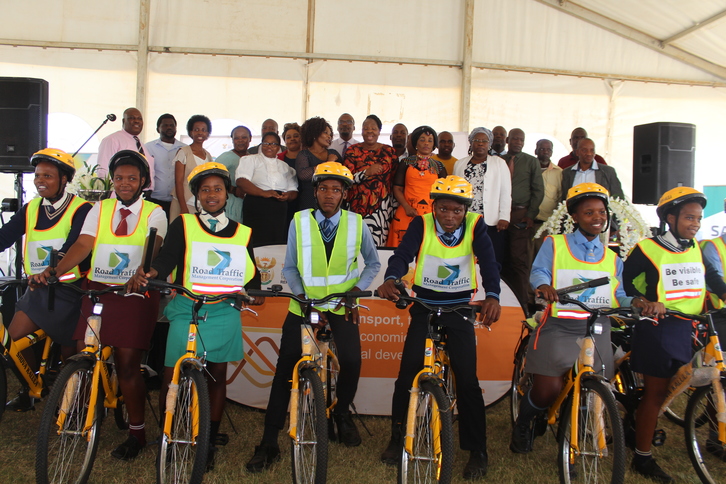
“The programme is an intervention to improve mobility and access to basic needs and social and economic opportunities for people, especially in rural, remote and poorly resourced areas,” said Chikunga.
Bicycle maintenance shops were established in various provinces to maintain the bikes and ensure job creation and SMME development.
The project forms part of a road safety initiative that promotes non-motorised transport and road safety awareness.
As well as making travel easier for the youth Deputy Minister Chikunga said that government must also prioritise a future that enables them to develop and advance our country and secure their future.
“The world demands more sophisticated products and services and there is a great need for skilled people to produce them,” she said.
Asanda Fakazi (15), a beneficiary of a bicycle, is a Grade 10 learner at Ntongande High School. She said that walking the long distance to school resulted in her missing some of the lessons.
“Life has changed. The bicycles will not only serve as transport to school, but will also encourage us to attend school regularly,” she said.
The municipality’s Mayor, Smanga Mgenge, said they are very grateful for the donation. “These bicycles are for learners, no one else. I urge you not to misuse them,” he said.
Men in blue lay down the law
Men in blue lay down the law vuyelwanSONA 2018
South Africans will feel much safer with all of government's plans to curb crime.
Government will be focusing on ensuring that police stations have resources to tackle crime.
“This will include personnel and other resources to restore capacity and experience at the level at which crime is most effectively combated,” said President Cyril Ramaphosa when delivering his State of the Nation Address (SoNA).
He said police stations are grappling with detective and vehicle shortages, resulting in low staff morale‚ which in turn cripples the police’s ability to adequately serve the community. 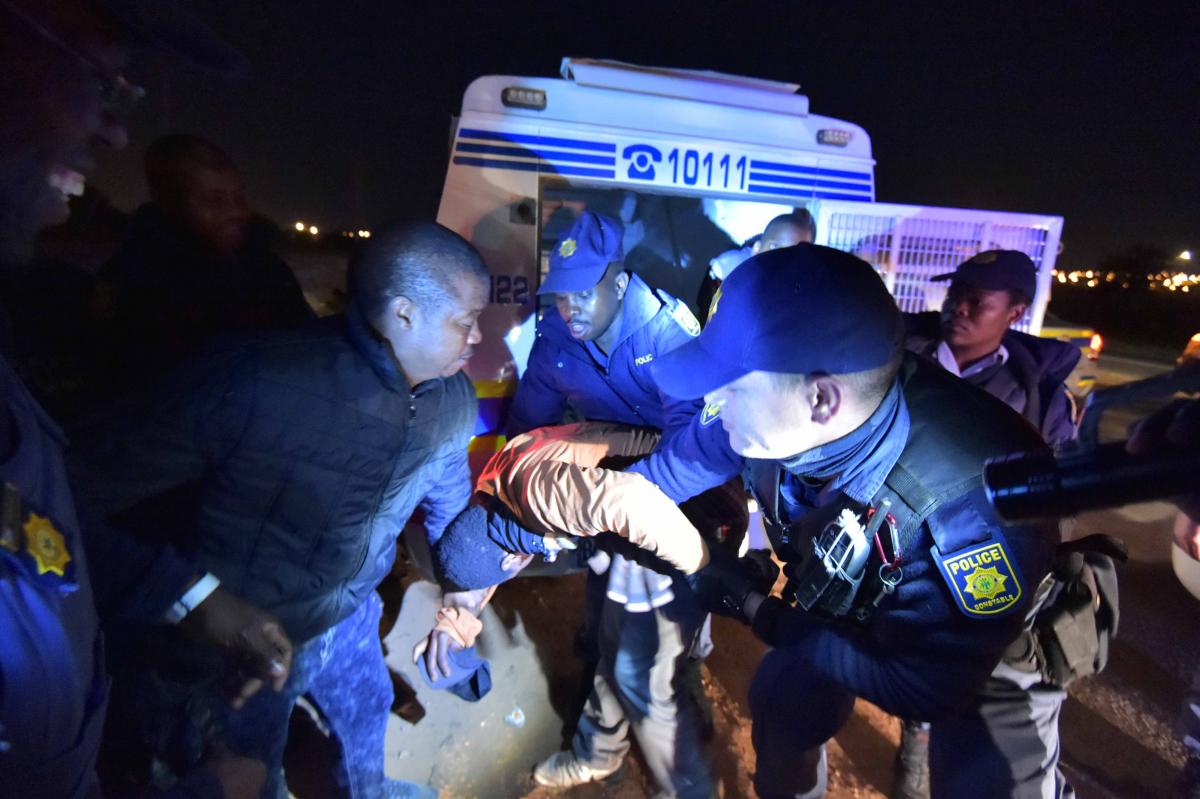
Government will implement the Community Policing Strategy.
This will be in line with gaining the trust of the community and to secure their full involvement in the fight against crime.
In addition to this will be the introduction of a Youth Crime Prevention Strategy will empower and support young people to be self-sufficient and become involved in crime fighting initiatives.
In recognising the critical role that NGOs and community-based organisation play in tackling poverty, inequality and related social problems, a Social Sector Summit will be convened during the course of this year.
Among other things, this Summit should seek to improve the relationship between the state and civil society and address the challenges that NGOs and CBOs face.
The President hopes these initiatives will help address the county’s crime challenge.
Fast facts
- The SAPS has establish street committees to assist in the fight against crime. This goes hand in hand with reviewing the Community Police Forum Policy.
- Public order policing will be expanded, and R242 million in 2017/18 and R355.8 million in 2018/19, will be made available for this task.
- A total of R2.5 billion has been allocated over the MTEF period to build, upgrade and maintain police stations.
- The department plans to build 63 additional police stations over the period at an estimated cost of R588.3 million.
News in brief - Mar 2018
News in brief - Mar 2018 Estelle GreeffIsuzu Motors invest in SA
The South African economy has received a major boost with the Isuzu Motors purchase of the Struandale plant in Port Elizabeth.
Department of Trade and Industry Minister Rob Davies said the investment will save jobs.
“We know that this investment will mean that 1 000 jobs in the facility will be saved and there are 3 000 jobs in the direct supply chain and many thousands more in the supply companies. Jobs will continue to be guaranteed in the future.”
CSIR brings technology to improve water safety, delivery
Low-cost technologies to improve the quality of water and service delivery in municipalities were displayed at the 12th National Municipal Managers Forum which took place in Mpumalanga in February.
The Council for Scientific and Industrial Research (CSIR) displayed these technologies at the forum.
No place for corruption in SA
No place for corruption in SA vuyelwanSONA 2018
South Africa must fight corruption, fraud and collusion in the private sector with the same purpose and intensity, said President Cyril Ramaphosa. “We will make sure that we deal with both in an effective manner.”
President Ramaphosa urged professional bodies and regulatory authorities to take action against members who are found to have acted improperly and unethically.
“This requires that we strengthen law enforcement institutions and that we shield them from external interference or manipulation.”
Adding that government will urgently attend to the leadership issues at the National Prosecuting Authority to ensure that this critical institution is stabilised and able to perform its mandate.
“We will also take steps to stabilise and strengthen vital institutions like the South African Revenue Service.”
He said tax morality is dependent on an implicit contract between taxpayers and government that state spending provides value for money and is free from corruption.
The President will appoint a Commission of Inquiry into Tax Administration and Governance of SARS, to ensure that credibility is restored along with ensuring that the revenue meets its revenue targets.
Did you know?
Since 2014 the number of persons convicted in respect of high priority matters (in which potential corruption per case totals R5 million and the value money of assets recovered totalled R230 million while the value of the potential loss prevented came close to R1.4 billion over the same period.
Transforming the criminal justice system
In 2011 government took firm steps to build its anti-corruption capacity in the Public Service through the creation of the:
- Public Service Anti-Corruption Unit
- Multi-Agency Working Group
- National Anti-Corruption Hotline
- In 2011 government completed a forensic laboratory for the South African Police Service. This state of the art facility cost R700 million.
- A new correctional centre was built in Kimberley for R932- million.
- In 2015 was announced that the South African Police Service (SAPS) Family Violence, Child Protection and Sexual Offences Investigation Unit secured 659 life sentences against perpetrators of crimes against women and children.
- The High Court Division in Limpopo was opened in November 2016.
- By 2017 government announced an increase in police visibility and SAPS was to enhance the utilisation of the DNA database in the identification of suspects.
On the red carpet
On the red carpet LondekileSoNA 2018
President Cyril Ramaphosa delivered the State of the Nation Address (SoNA) to a joint sitting of Parliament on 16 February 2018 in what was a vibrant and glamorous affair. During his speech, the President talked about government’s achievements of the past year and looked to the future by presenting a programme for the coming year. Vuk’uzenzele captured all the highlights of the SoNA, including all the glitz of the red carpet.
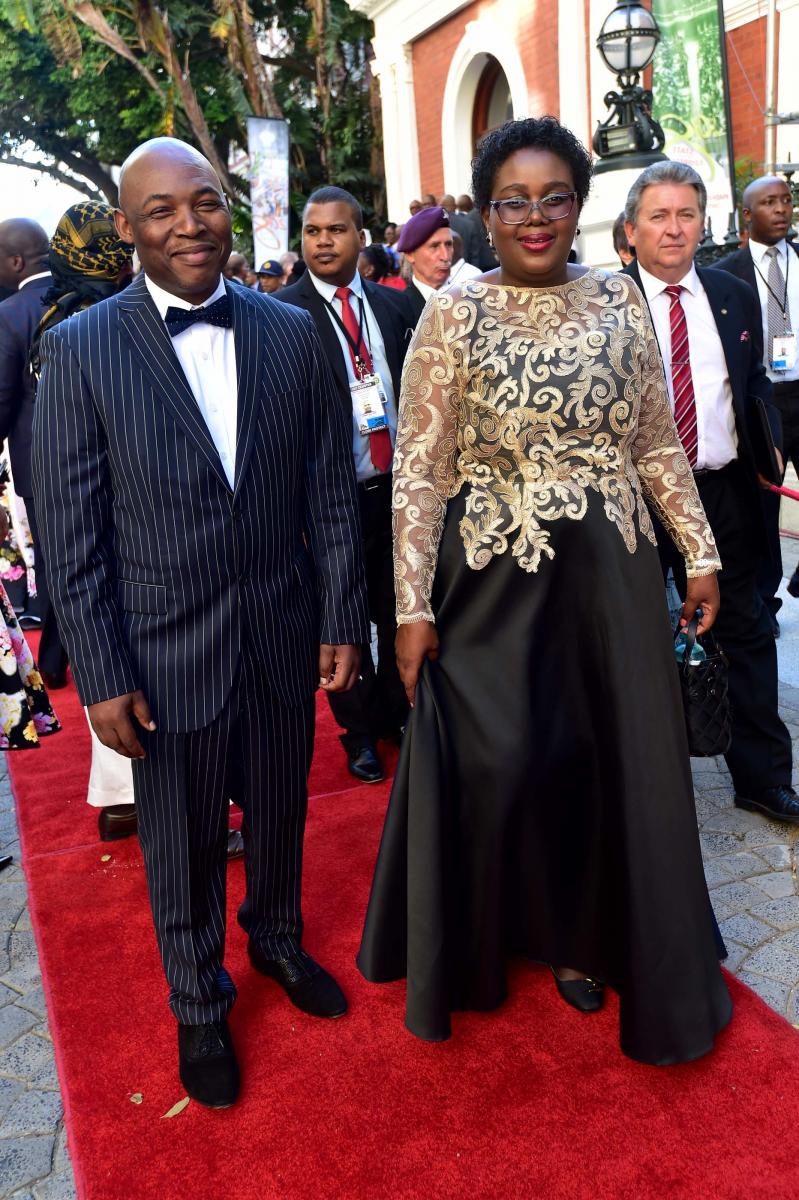
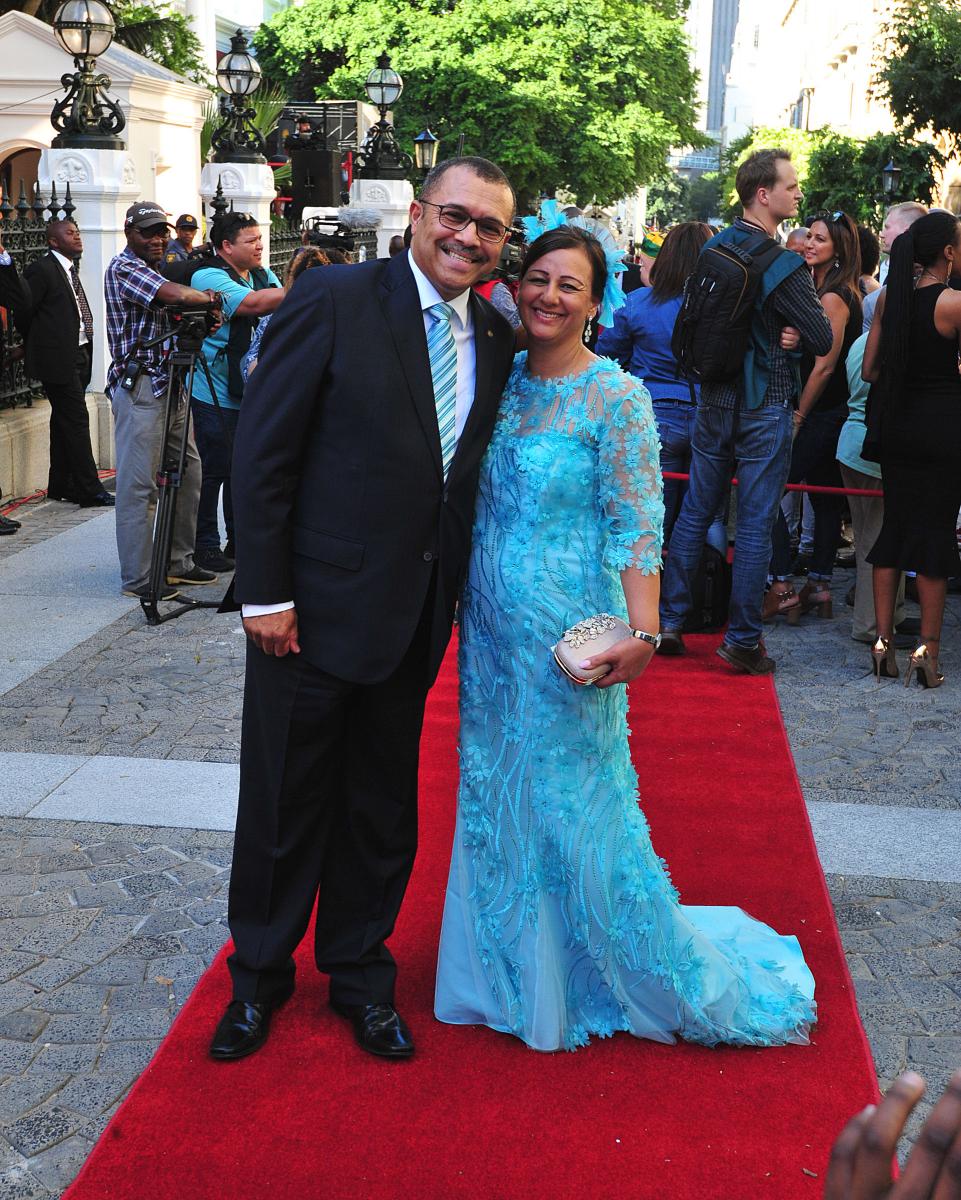
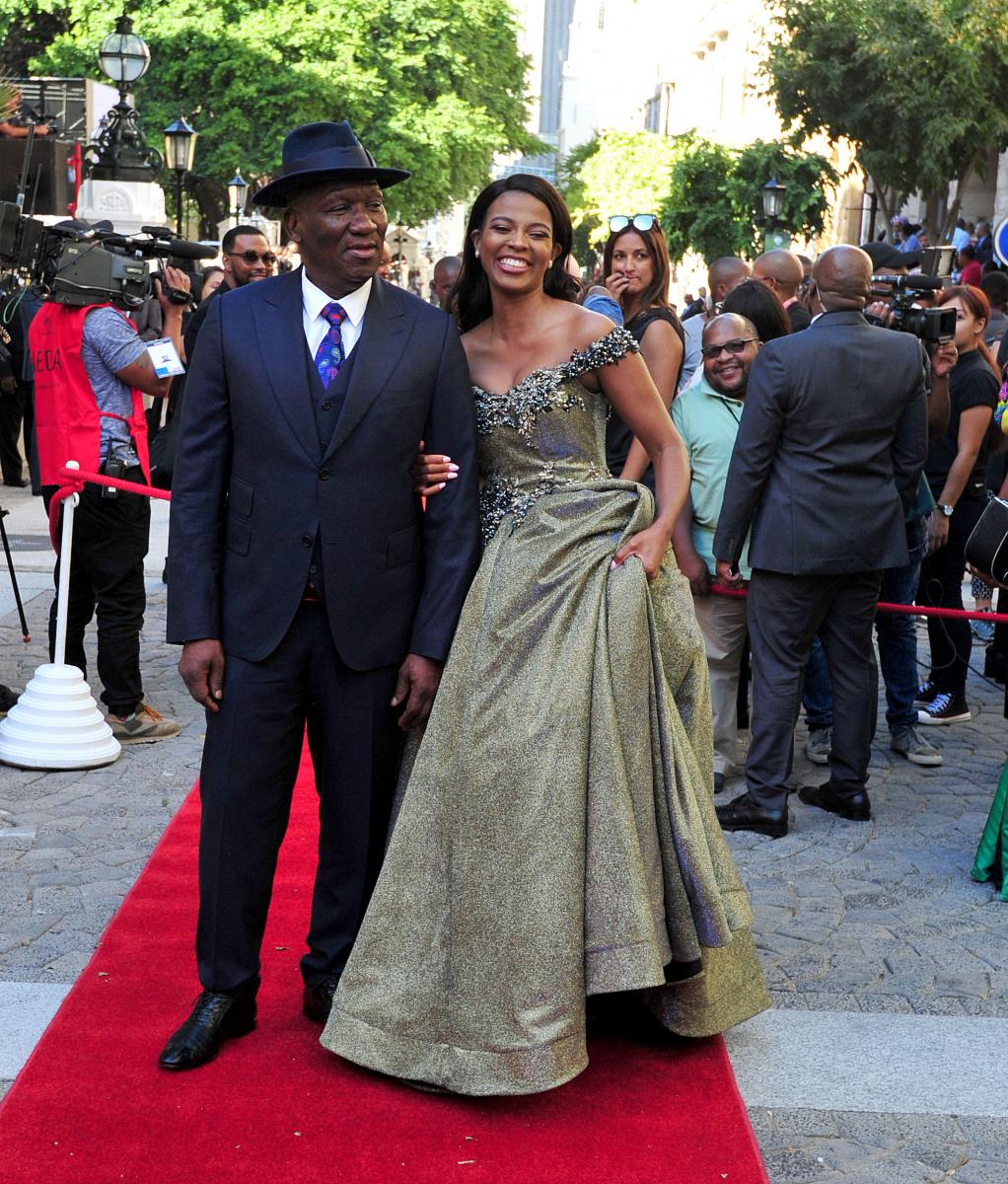
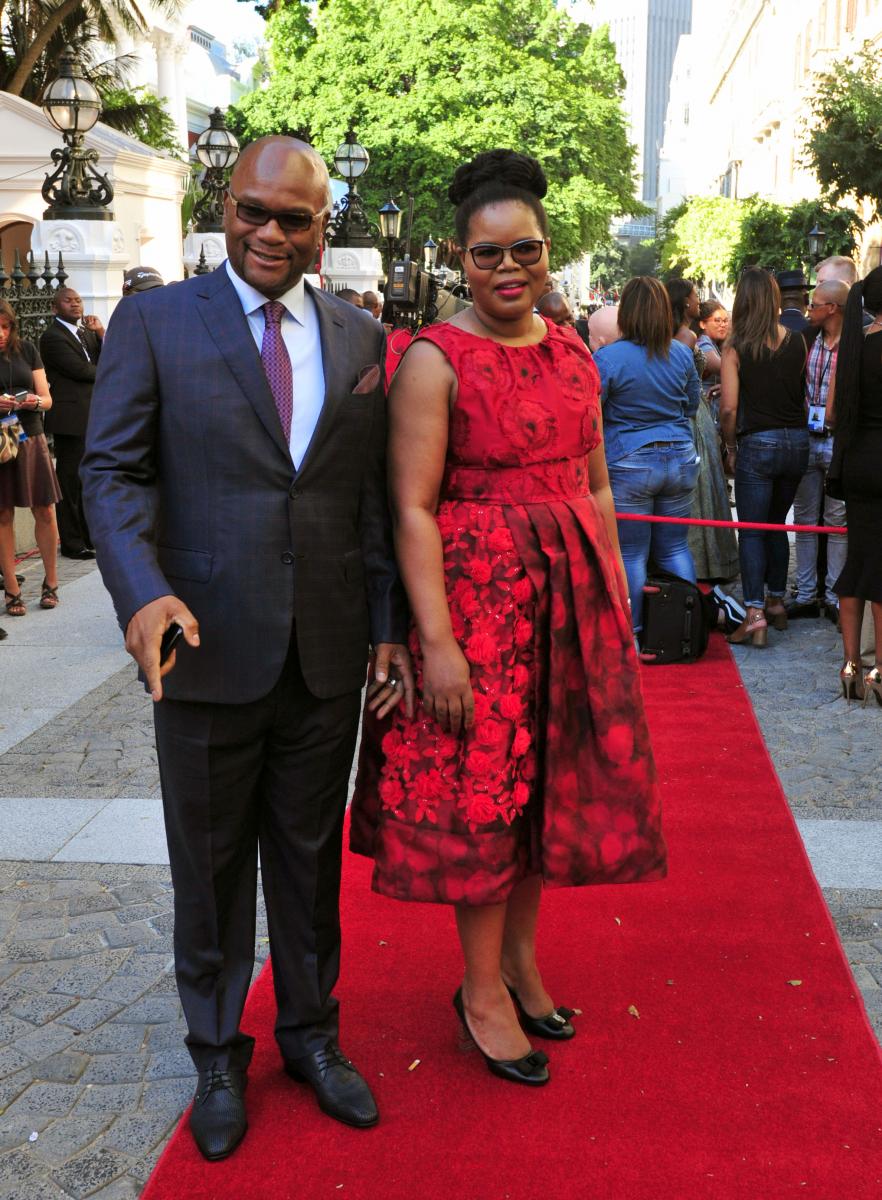
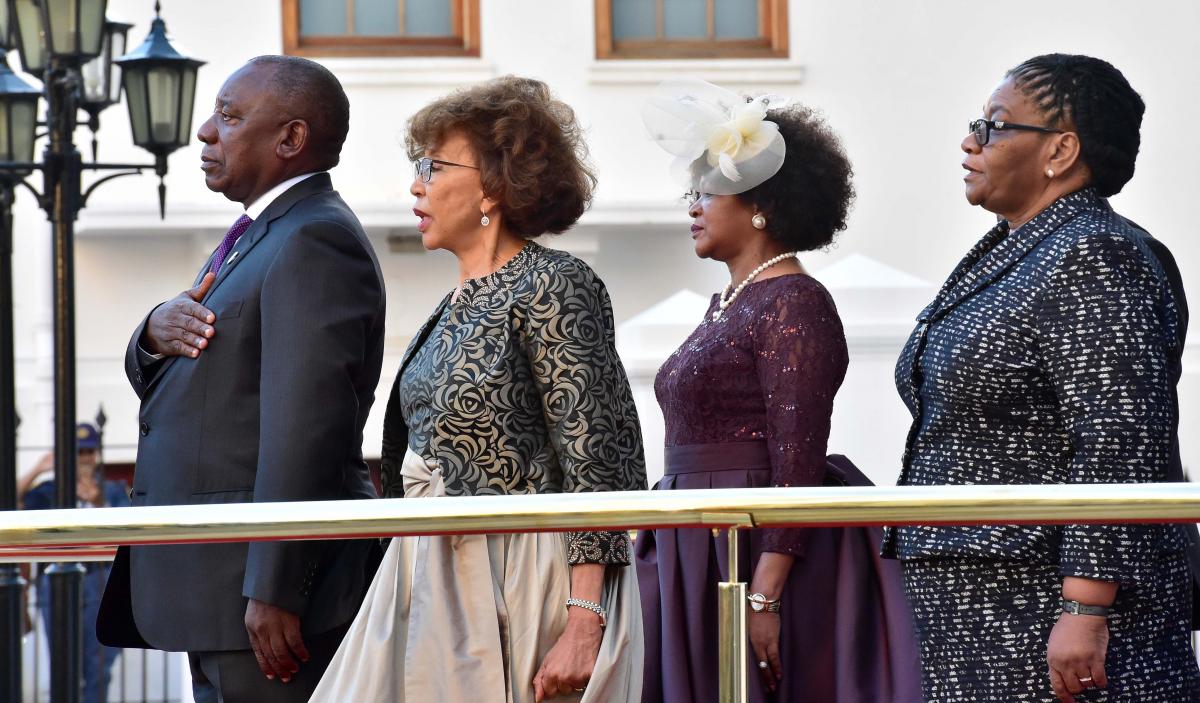
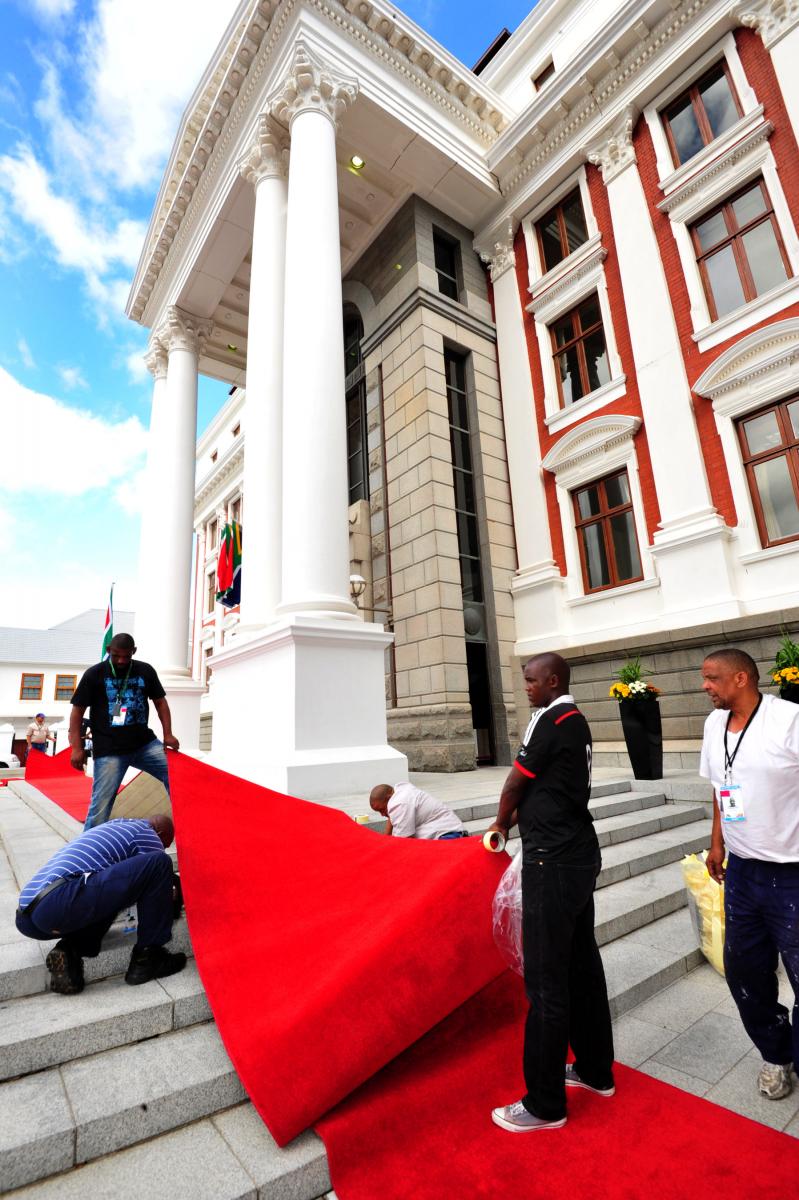
Save our rhinos
Save our rhinos UrsulaSouth Africa’s efforts brought rhinos back from the brink of extinction in the 1960s, but the species remains threatened with a population of only 20 000.
The Minister of Environmental Affairs, Edna Molewa, has released the first 2018 progress report on government’s integrated strategic management approach to combat rhino poaching.
The report, which also covers the last quarter of 2017, shows progress in the number of arrests, investigations and successful convictions of rhino poachers and smugglers and a minor decrease in the number of rhinos poached nationally in 2017 (1 028), compared to 2016 (1 054).
In 2017 there were eight seizures of rhino horn at OR Tambo International Airport and 502 alleged rhino poachers and 16 alleged traffickers were arrested, bringing the number to 518, a decrease from 680 in 2016.
“Regrettably, 21 officials from our own personnel were arrested for poaching-related activities in 2017,” Minister Molewa said.
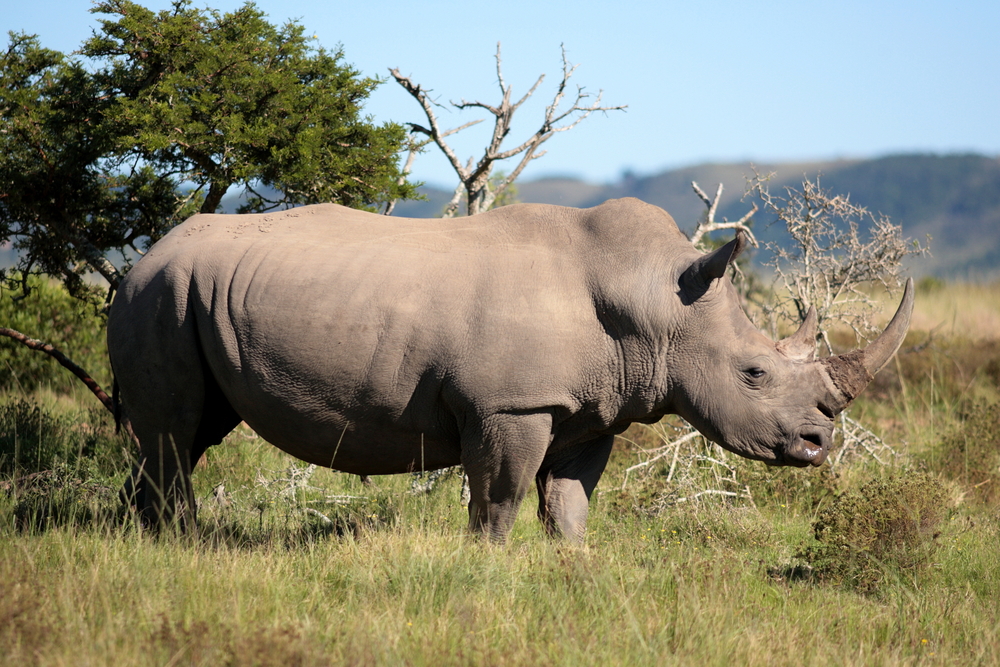
Curbing poaching
Government and its partners have instituted various measures to curb rhino poaching, including patrol programmes at national parks and utilising game-changing technology.
Between January and December 2017, 504 rhinos were poached at the Kruger National Park (KNP), which is 24 percent less than the 662 in 2016.
“As a result of our anti-poaching strategy in the KNP we are seeing a decrease in the number of poacher activities in the park, with 2 662 recorded in 2017 compared to 2 883 in 2016. This represents a percentage decrease of 7.6 percent,” the Minister confirmed.
However, the number of rhinos poached in KwaZulu-Natal, the Northern Cape, Mpumalanga, the Free State and the North West has increased.
Effect on the economy
Rhino poaching and wildlife trafficking negatively impact the economic development of the country and job creation, including the development of the country’s biodiverse economy which incorporates the tourism sector.
“The loss of one of South Africa’s iconic wildlife species such as the rhino, which is one of the ‘Big Five’ can have a negative impact on the number of tourists visiting South Africa. Many tourists visit South Africa to come and see the Big Five, which are rhino, lion, buffalo, leopard and elephant,” the Department of Environmental Affairs said in a statement.
Rhino poaching has been recognised as a security risk to the country, which may impact the number of tourists visiting the country, and government has declared it as a national priority crime.
The illegal activities associated with rhino poaching and the trafficking of rhino horn only benefit a relatively small criminal fraternity.
“These criminal networks take advantage of the complexity of this type of crime. While the syndicates reap the benefits, government’s ability to ensure socio-economic development is hampered because organised crime syndicates and activities become more embedded in communities across the country,” the department confirmed.
SoNA in numbers
SoNA in numbers Londekile
SoNA 2018
100th Anniversary
Celebrating the birth of former President Nelson Rolihlahla Mandela.
Population

57 million – South Africa’s diverse population.

Employment
- 3.2 million – work opportunities created by public employment programmes.
- 1 million – public servants employed by the State.
- 6 million – working South Africans whose earnings are expected to increase.

Social development
- 3.5 million – indigent households being supported by government’s free basic services programme.
- 17 million – social grants being paid each month, benefiting nearly a third of the population.
- 1 million – children in early childhood development facilities.

Education
- 60.6 percent matric pass rate in 2009.
- 75.1 percent – matric pass rate in 2017.
- 1 million – students enrolled in higher education in 2018.
- 500 000 – students enrolled in higher education in 1994.
- 39 500 – bursaries to be awarded by the Funza Lushaka Bursary Programme for Initial Teacher Education over the next three years.
- 1 million – internships to be created in the next three years.
- R350 000 – the gross combined annual income of households of first-year students benefiting from free higher education in 2018.

Economy and investment
- R57 billion – amount spent on locally produced goods.
- 30 percent – value of public procurement to be set aside for small, medium and micro enterprises, cooperatives, and township and rural enterprises.
- R1.5 billion – the value of the Small Business Fund established through the CEOs Initiative.
- 26 – countries whose markets will be combined by the free-trade area.
- 625 million – population of 26 countries whose markets will be combined by the free-trade area.

Tourism
700 000 – direct jobs being sustained by tourism
Infrastructure development
187 – schools in rural and underprivileged urban areas across the country completed under the Accelerated Schools Infrastructure Delivery Initiative programme.
Health
2 million – additional people to be initiated on antiretroviral treatment by December 2020.
South Africans jubilant after SoNA
South Africans jubilant after SoNA Estelle GreeffSoNA 2018
Excitement has rippled through the country following the State of the Nation Address.
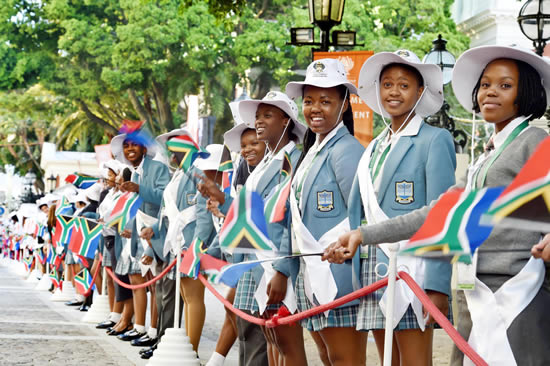 This is a year of hope, renewal and change with government intent on building a society in which everyone is free, equal before the law, shares in the country’s wealth and has a better life.
This is a year of hope, renewal and change with government intent on building a society in which everyone is free, equal before the law, shares in the country’s wealth and has a better life.
Newly elected President Cyril Ramaphosa’s maiden State of the Nation Address (SoNA), delivered in Parliament on 16 February, has inspired citizens across the country.
Encouraging economic growth and inclusivity, job creation, improving access to education, developing infrastructure and access to decent healthcare and dealing a meaningful blow to corruption were among the SoNA’s main themes.
The President recalled the values of late President Nelson Mandela and struggle heroine Albertina Sisulu, who would both have turned 100 years old this year. He recounted President Mandela’s integrity
“We will use this year to reinforce our commitment to ethical behaviour and ethical leadership” said President Ramaphosa
President Ramaphosa said leaders agreed that the main goal is to build a society defined by decency and integrity, one that does not tolerate the abuse of public resources or theft by corporations.
Economic growth has been inadequate and public finances have been constrained. This has limited government’s ability to invest more in economic and social development to the benefit of its 57 million people.
Government has taken extra measures to reduce poverty and meet the needs of the unemployed. Public employment programmes have created over 3.2 million opportunities that provide:
- an income, work experience and training;
- the free basic services programme supports over 3.5 million poor households;
- over 17 million social grants are paid monthly.
Education
Government has almost one million children in early childhood development facilities and has improved the basic education system. In addition, almost one million students are enrolled for higher education.
This year government will start introducing free higher education and training to first-year students from households with a gross combined annual income of up to R350 000.
The Funza Lushaka Bursary programme will award 39 500 bursaries for Initial Teacher Education over the next three years and from 2018 all public schools offer an African language as part of the curriculum.
Youth unemployment
Youth unemployment is an urgent and serious challenge. “Young South Africans will be moved to the centre of our economic agenda,” he said.
Young people can gain exposure to the world of work through internships, apprenticeships and mentorship, in partnership with business, organised labour and community representatives.
In March government will launch the Youth Employment Service Initiative that will place unemployed youth in paid apprenticeships. Together with business, one million internships will be created in the next three years.
The President will also establish a Youth Working Group, that is representative of all young South Africans, to ensure policies and programmes advance their interests.
Growth, employment and transformation
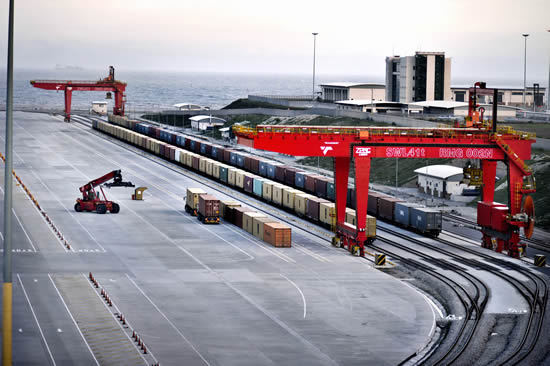 President Ramaphosa said government, with civil society and the private sector, will introduce measures to put South Africa on a new path of growth, employment and transformation.
President Ramaphosa said government, with civil society and the private sector, will introduce measures to put South Africa on a new path of growth, employment and transformation.
The planned initiatives include a jobs summit, to unify sectors and stakeholders to find practical ways of tackling youth unemployment; and an investment conference, to encourage significant new investment in the economy by local and international players.
The President said the decline in manufacturing has deeply hurt employment and exports. “Government will seek to reindustrialise on a massive scale; promote investment in key manufacturing sectors, by means of incentives; and stimulate manufacturing by moving forward with the localisation programme through which products like textiles, clothing, furniture, rail rolling stock and water meters will be bought locally."
The President said government has already spent over R58 billion on locally produced products, as opposed to imported ones.
Crime and corruption
“This is the year in which we will turn the tide of corruption in our public institutions,” the President announced.
A commission of inquiry will seek to identify the extent and nature of state capture, restore confidence in public institutions and identify wrongdoers.
“The Commission should not displace the regular work of the country’s law enforcement agencies in investigating and prosecuting all acts of corruption.
We must fight corruption, fraud and collusion in the private sector with the same purpose and intensity.
We must remember that every time someone receives a bribe there is someone who is prepared to pay it. We will make sure that we deal with both,” President Ramaphosa confirmed.
VAT - the poor to be buffered
VAT - the poor to be buffered Estelle GreeffGovernment is ensuring that it protects the country’s most vulnerable during these tough economic times.
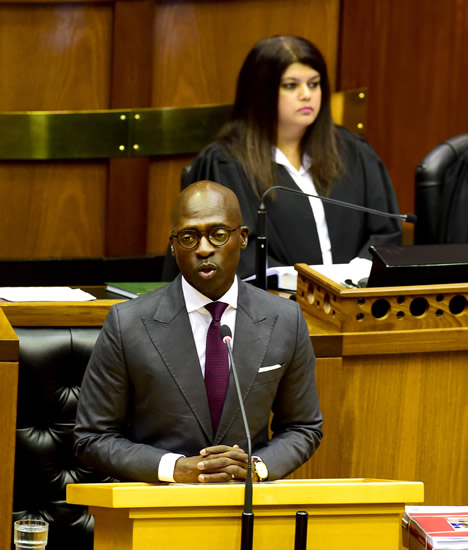 The effect of an increase in VAT to 15 percent from 14 percent is going to be buffered by South Africa's high level of social services. That's according to Finance Minister Malusi Gigaba who says the increase, which takes effect on 1 April, will also see South Africans enjoy greater relief from below inflation increases in personal income tax rebates and brackets, and steps government is taking towards free higher education.
The effect of an increase in VAT to 15 percent from 14 percent is going to be buffered by South Africa's high level of social services. That's according to Finance Minister Malusi Gigaba who says the increase, which takes effect on 1 April, will also see South Africans enjoy greater relief from below inflation increases in personal income tax rebates and brackets, and steps government is taking towards free higher education.From 1 April 2018 old-age disability grants will increase from R1 600 to R1 690 and to R1 700 in October. Child support grants will increase from R380 to R400 in April, and to R410 in October.
This is a 6.6 percent annual increase. Since October 2017’s Medium-Term Budget an additional R2.6 billion has been added to social grants to enable these increases.
“As highlighted by the President in the State of the Nation Address, government will ensure that social grants will continue to be paid without disruption,” said Minister Gigaba.
In its budget review, National Treasury said expenditure on social protection provides social security and a safety net for low-income South Africans.
It also improves social welfare service delivery to vulnerable individuals through policy and legislative reform, growing the number of social workers, improving access to Early Childhood Development and facilitating food and nutrition initiatives.
“Spending on social protection is set to rise from R193.4 billion in 2018/19 to R223.9 billion by 2020/21, growing by an average of 7.9 percent. The number of social grant beneficiaries is expected to reach 18.1 million by the end of 2020/21.”
An estimated 12.8 million people will receive the child support grant and 3.7 million people will receive the old-age grant.
2018 Tax proposals
- An increase in value-added tax (VAT) from 14 to 15 percent, effective 1 April 2018.
- A below inflation increase in personal income tax rebates and brackets, with greater relief for those in the lower income tax brackets.
- A 52 cent per litre increase in the levies on fuel, made up of 22 cents per litre for the general fuel levy and 30 cents in the Road Accident Fund levy.
- Increases in alcohol and tobacco excise duties of between 6 and 10 percent.
A move towards fee-free education
Minister Gigaba said government will spend about R57 billion on fee-free higher education over the next three years.
“The largest reallocation of resources towards government’s priorities was on higher education and training, amounting to additional funding of R57 billion over the medium term. As a result, this is the fastest-growing spending category, with an annual average growth of 13.7 percent,” he said.
Government will phase in fee-free higher education and training to students from poor and working-class families.
This means that all new first-year students, with a family income below R350 000 per annum, at universities and technical vocational education and training colleges in 2018 will be funded for the full cost of their studies.
Returning National Student Financial Aid Scheme students at universities will also have their loans, for 2018 and going forward, converted to
bursaries.
Did you know?
The National Treasury has launched Vulekamali, an online budget data portal that will make budget information more accessible and user-friendly. Visit: www.vulekamali.gov.za for more information.
Voter registration to take place in March 2018
Voter registration to take place in March 2018 Estelle GreeffThe Electoral Commission is making sure that as many South Africans as possible are registered to vote in the 2019 elections.
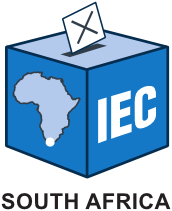 The Independent Electoral Commission of South Africa (IEC) has announced the first 2019 elections’ voters registration weekend and has urged eligible voters across the country to visit their voting station to either update their details on the voters’ roll or to register to vote.
The Independent Electoral Commission of South Africa (IEC) has announced the first 2019 elections’ voters registration weekend and has urged eligible voters across the country to visit their voting station to either update their details on the voters’ roll or to register to vote.
The commission’s Chief Electoral Officer Sy Mamabolo said
all 22 612 voting stations will open on the weekend of 10 and 11 March 2018, from 8am to 5pm, to make it easy and convenient for voters to update their registration details or register.
If you have moved to a new area since you last registered to vote, you have to re-register in your new voting district.
South Africa citizens aged 16 and over and in possession of an official identity document or card can register to vote. If you are not registered, you will not be allowed to cast your vote in 2019.
Registered voters, whose address details are not on the voters’ roll, can provide the required information at their voting station during registration.
“We need voters to show up and make use of the opportunity,” said Mamabolo.
“The IEC still does not have addresses for about 2.8 million voters. We have a further 3.5 million addresses that are classified as ‘incomplete’ or ‘generic’. This category requires further analysis to ascertain whether there are any other details available,” he added.
 The commission sourced addresses using different initiatives, including reviewing records, files and archives to check and capture addresses provided by voters over the past 20 years; collecting addresses during the 2016 municipal elections; and undertaking field work ahead of registration weekends for the by-elections.
The commission sourced addresses using different initiatives, including reviewing records, files and archives to check and capture addresses provided by voters over the past 20 years; collecting addresses during the 2016 municipal elections; and undertaking field work ahead of registration weekends for the by-elections.
Where necessary, voters found to be registered in the incorrect voting districts were moved, as provided for by Section 12 (1)(d) of the Electoral Act.
“We have received and used, where possible, address data from other state sources such as Statistics South Africa, the South African Social Security Agency, Telkom, the South African Post Office and the Department of Home Affairs,” he said.
To Vote
- In October 2017 the Electoral Commission launched a website (www.elections.org.za) for registered voters who have internet access to review and/or provide their address.
- Voters can also call the Contact Centre (0800 11 8000), from Monday to Friday during office hours, for assistance regarding the location of their voting station and any other queries.
- Registered voters can also SMS their ID number to 32810 to receive an SMS containing the address of their voting station (SMS costs R1).
What to take with you
- When visiting your voting station take your bar-coded ID book, smart ID card or temporary ID certificate with you.
- You will be assisted to complete a registration form which details your physical address. This will enable the commission to place you in the right voting district. Proof of residence is NOT required.